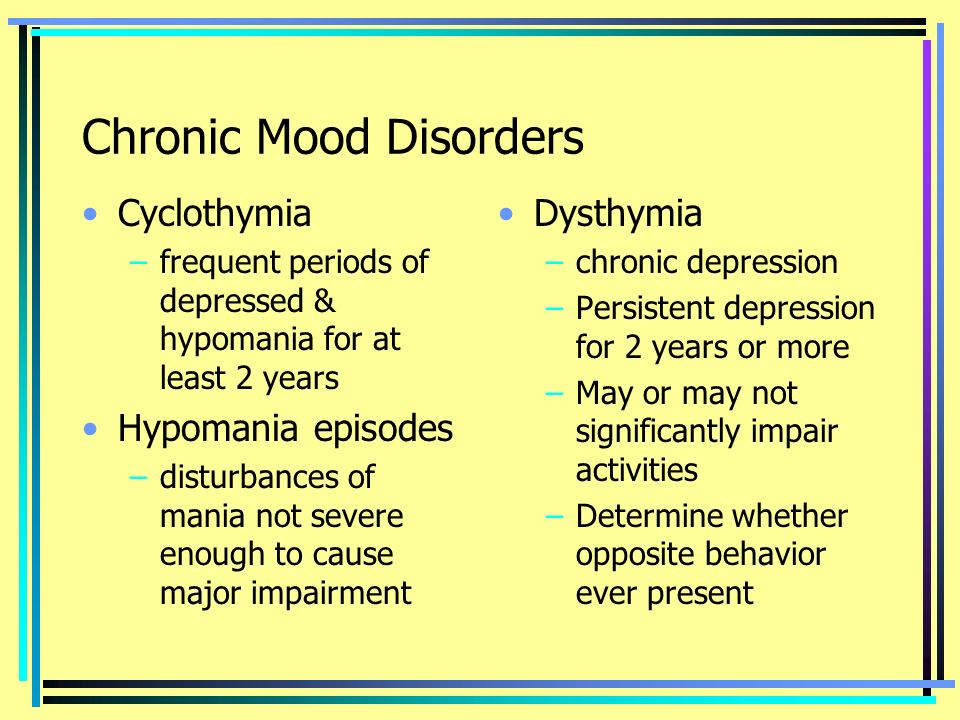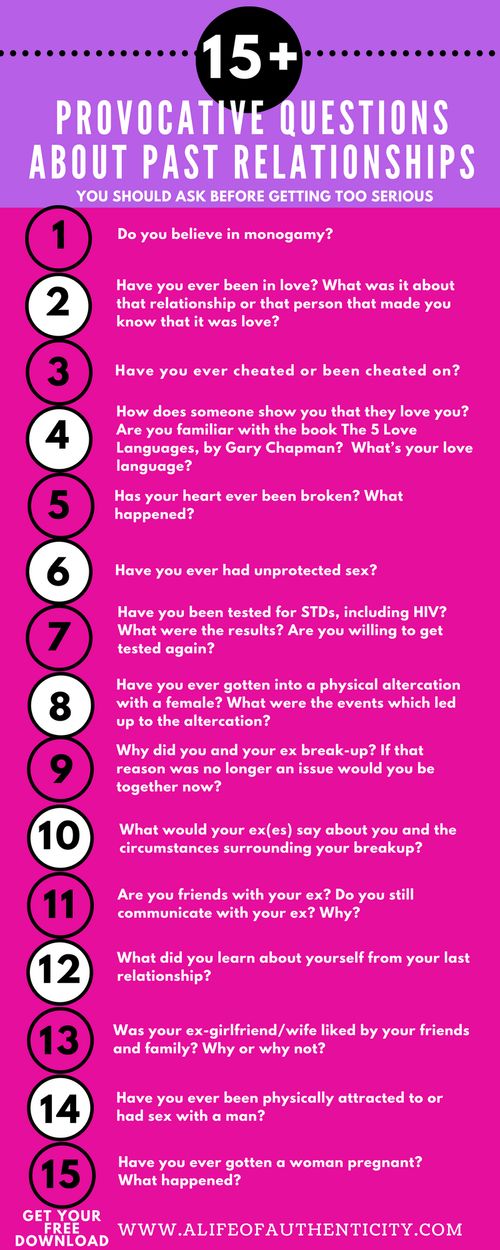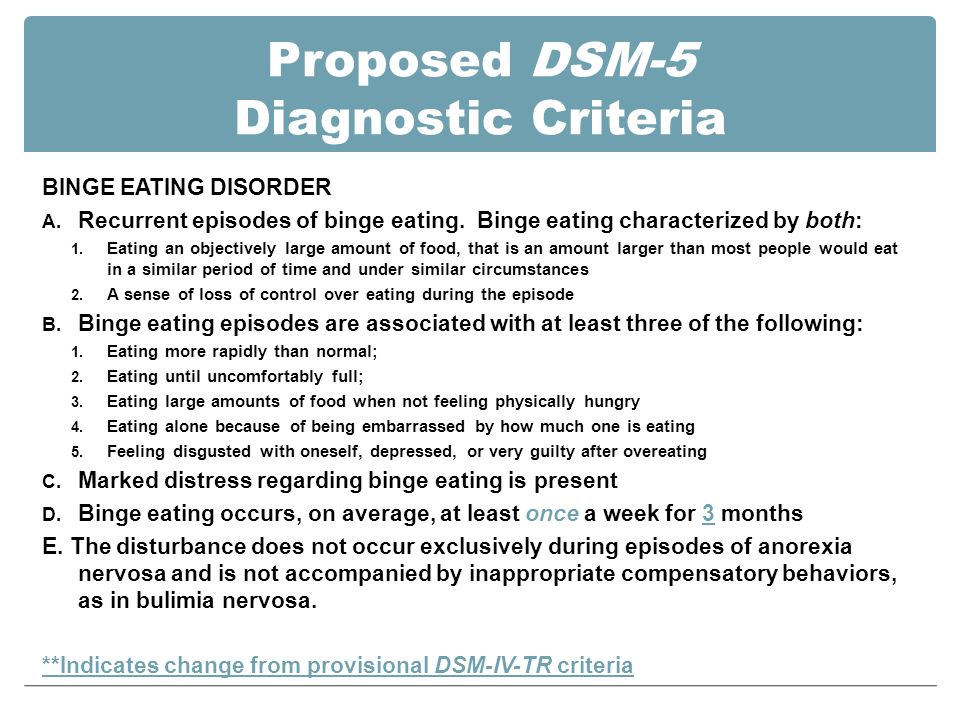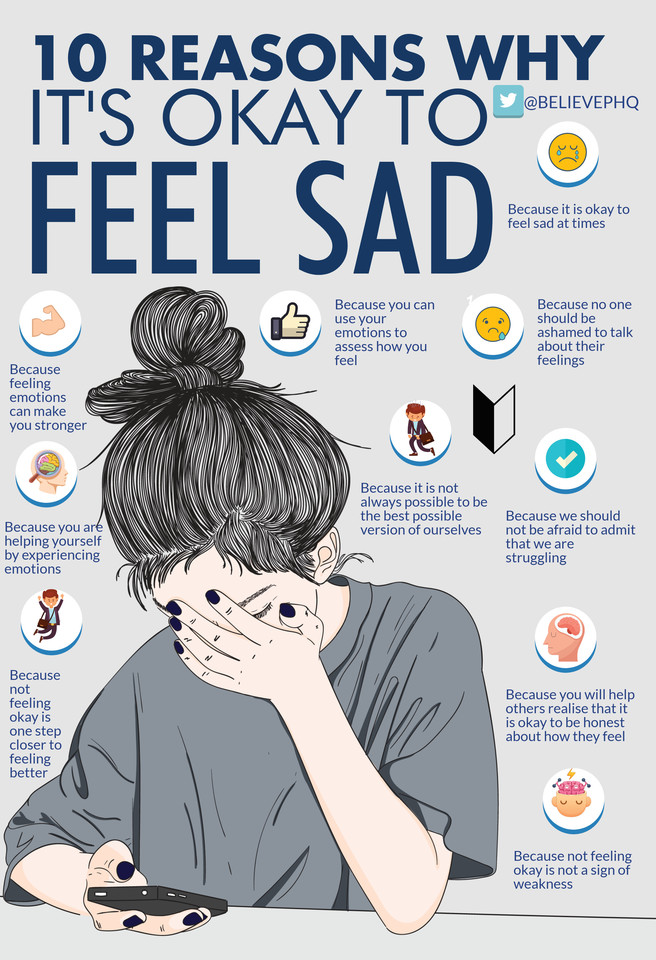Bpd victim mentality
Borderline Personality Disorder: 6 signs often missed
Borderline personality disorder gets its name from the 1938 psychoanalytic work of Adolf Stern. Stern noticed a growing prevalence of patients exhibiting symptoms that were neither distinctly psychotic nor neurotic but on the “borderline.” Consequently, he thought the condition was a mild form of schizophrenia. However, he saw little improvement in symptoms using the day’s known treatments. Even today, BPD is difficult to diagnose because symptoms mimic other conditions. It is also challenging to treat because of the cognitive nature of those same symptoms.
The DSM-5 diagnostic criteria for Borderline Personality Disorder:
BPD is a pervasive pattern of instability in interpersonal relationships, self-image, and emotion, as well as marked impulsivity beginning by early adulthood and present in a variety of contexts, as indicated by five (or more) of the following:
- Chronic feelings of emptiness
- Emotional instability in reaction to day-to-day events (e.
g., intense episodic sadness, irritability, or anxiety usually lasting a few hours and only rarely more than a few days)
- Frantic efforts to avoid real or imagined abandonment
- Identity disturbance with markedly or persistently unstable self-image or sense of self
- Impulsive behavior in at least two areas that are potentially self-damaging (e.g., spending, sex, substance abuse, reckless driving, binge eating)
- Inappropriate, intense anger or difficulty controlling anger (e.g., frequent displays of temper, constant anger, recurrent physical fights)
- A pattern of unstable and intense interpersonal relationships characterized by extremes between idealization and devaluation (also known as “splitting”)
- Recurrent suicidal behavior, gestures, or threats, or self-harming behavior
- Transient, stress-related paranoid ideation or severe dissociative symptoms (American Psychiatric Association, 2013).
Symptoms mimic those of other conditions
Borderline Personality Disorder is the chameleon of personality disorders.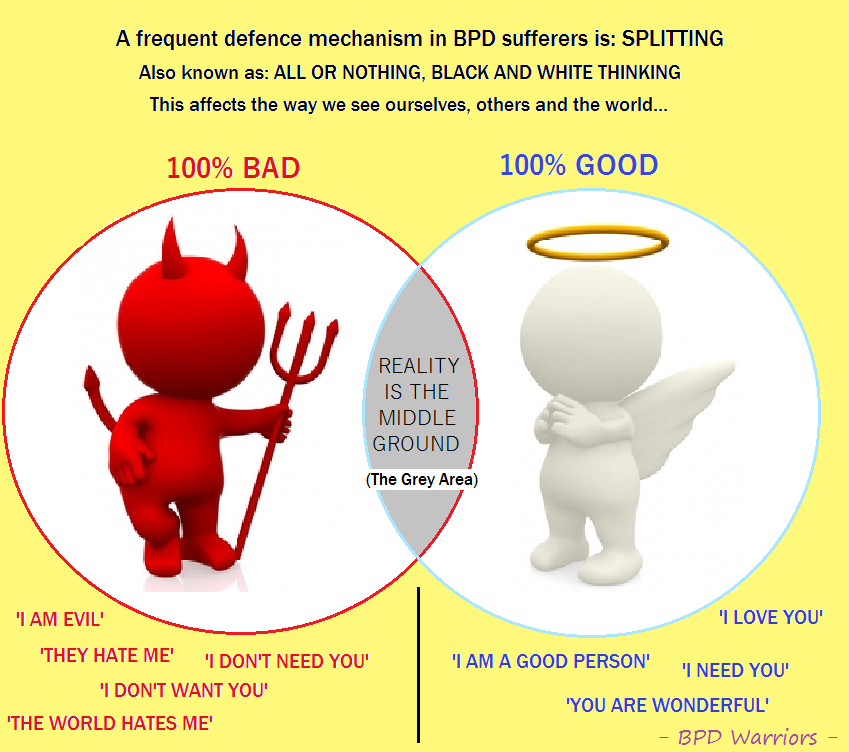 Emotional dysregulation is the central component, allowing symptoms to masquerade as the opposite of what they are. For example, compared to Antisocial Personality Disorder (ASPD), those with Borderline personality disorder may display aggression, hostility, impulsivity, lack of empathy, or a callous disregard for others’ rights and feelings. They may show little concern for the safety of themselves or others.
Emotional dysregulation is the central component, allowing symptoms to masquerade as the opposite of what they are. For example, compared to Antisocial Personality Disorder (ASPD), those with Borderline personality disorder may display aggression, hostility, impulsivity, lack of empathy, or a callous disregard for others’ rights and feelings. They may show little concern for the safety of themselves or others.
But unlike ASPD, which is characterized by shallow emotions and lack of remorse, BDP behavior stems from overwhelmingly intense emotions, acute fear of abandonment, and the tendency toward self-harm. Therefore, any apparent lack of empathy is usually the result of the inability to recognize others’ feelings and needs or an emotional shut-down as a defense mechanism.
In addition to impulsive behavior, rapidly changing emotions and perceptions might give the appearance of bipolar episodes. Depression is also common in Borderline personality disorder and can be triggered in its highest form by the slightest perceived cue.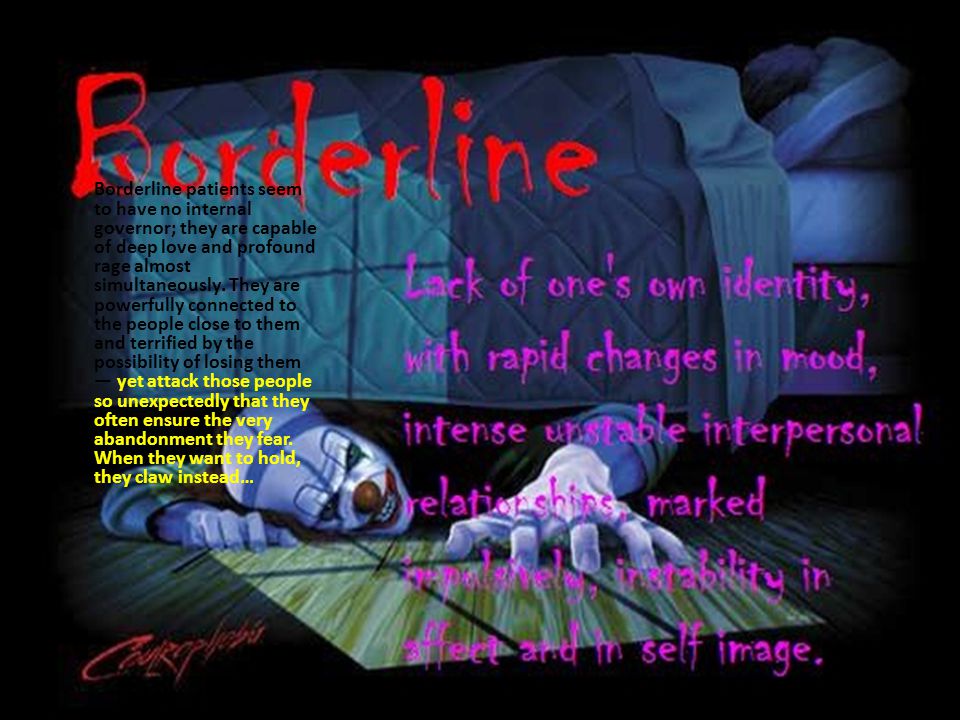 Those with BPD may be devastated by what is only a disappointment to others. They may feel enraged by what is only irritating to others. Humiliation replaces embarrassment; hopelessness replaces sadness, etc.
Those with BPD may be devastated by what is only a disappointment to others. They may feel enraged by what is only irritating to others. Humiliation replaces embarrassment; hopelessness replaces sadness, etc.
2 oz light rum
2 oz dark rum
1 1/2 oz passion fruit juice
1/2 oz grenadine
1/2 oz simple syrup
Splash of fresh lime juice
Splash of orange juice
Fill glass with ice.
Add all ingredients and stir.
Garnish with an orange wheel and cherry.
For those with Borderline personality disorder, people and situations are either good or bad. Or, more accurately, magnificent or evil. This black-or-white thinking is called “splitting.” For this reason, the slightest perceived misstep is enough for a catastrophic fall from grace in the eyes of someone with this disorder. They may perceive spite, malice, or persecution in others’ random, benign, or logical actions. This is, perhaps, reflective of fear of abandonment, which may take the form of frantic efforts to keep someone from leaving or suddenly ending a relationship as a preemptive strike. Similarly, they may push others away as a means of reassurance that they will come back.
Similarly, they may push others away as a means of reassurance that they will come back.
The kaleidoscope effect
Those with Borderline personality disorder generally lack a tangible sense of identity. Because of this, career goals, values, and interests evolve rapidly and may be easily influenced by others. Someone with BPD might adopt the traits of someone they hold in high regard, seemingly morphing into a different person from one month to the next. This kaleidoscope effect isn’t to deceive others; it is who they are at that moment.
Unregulated and intense emotions during childhood are a significant precursor to the development of this disorder. In addition, people with BPD often have traumatic backgrounds that include abuse, neglect, abandonment, or loss. Undoubtedly, these experiences would result in intense emotions. Suppose the child does not receive the support to develop healthy coping skills. In that case, they will likely suffer long-term social and psychiatric consequences.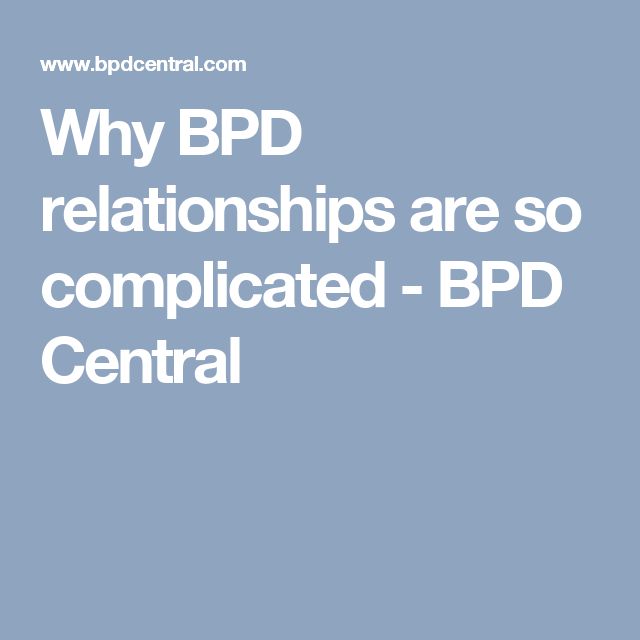
Parenting styles and childhood experiences
Some parental behaviors can cause substantial psychological harm while falling short of what many consider abuse.
Borderline personality disorder can develop from chronic parental invalidation of negative emotions or parental modeling of unregulated negative emotions. For example, a parent prone to shouting, throwing things, or demanding that an upset child stop crying is modeling uncontrolled anger while simultaneously invalidating the child’s emotions.
Parents may project onto their children their own feelings of insecurity, inadequacy, or worthlessness. A child might grow up internalizing these feelings, while chronic invalidation of inner experiences may disrupt identity development. Furthermore, maladaptive ways of expressing or managing emotions may be learned and passed down through generations. Parents often resort to the methods of discipline that they experienced as children. Therefore, what very well could constitute emotional abuse, neglect, or dysfunction during childhood might not be recognized as such.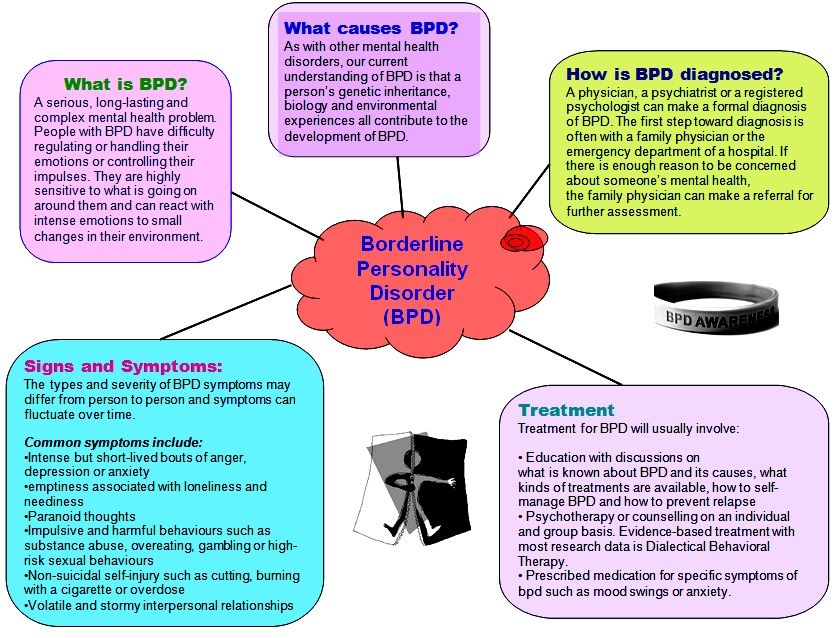
A victim mentality
So, how does this look in adulthood? Well, they have been harmed, but rarely can they identify the nature of their displeasure or the source of their anger. In other words, they have needs that they don’t know how to communicate or fulfill without causing a scene. Some may feel victimized and indignant, both of which have their legitimacy. But in lieu of an identifiable culprit, they may create a scapegoat or deliberately stir up drama, which will inevitably leave them indignantly victimized.
No matter what your circumstances, they have it worse. No matter the severity of their behavior, it’s nothing compared to how you treated them. The hard work and success of others are somehow unfair to them. Consequences of their actions they view as injustices from which they deserve protection. They may grasp at straws to justify their contempt. This reflects their inner turmoil and struggle to understand what they feel and why they feel it.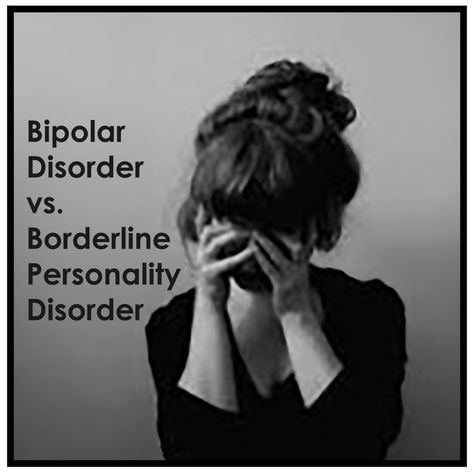
On the extreme end, a person with run-away emotions and absolute belief in their own righteousness could pose a significant threat to themselves or others. They may stalk, harass, vandalize, or threaten suicide if rejected. A person who sees another as an integral part of their identity is a hand grenade. The other person is the pin.
Shark Attack 1 oz cherry vodka (preferably UV brand)
1/2 oz grenadine
1 oz tequila
1/2 oz Blue Curacao
Splash of lemon lime soda
Pour cherry vodka and grenadine into a shot glass.
Place a pint glass upside down over the shot glass. Hold both glasses together, then flip over.
Pour tequila and Blue Curacao into a shaker with ice. Shake, then strain into the pint glass.
Top off with lemon lime soda.
To serve, slowly pull up the shot glass.
Psychologists once believed that Borderline personality disorder occurs predominantly in women. In clinical settings, females with BPD outnumber males with BPD by 3:1. Yet, recent epidemiological studies show no statistically significant difference in the occurrence rates between males and females among the population (Grant et al., 2008). Psychologists believe this contrast may suggest that women are more likely than men to seek treatment for mental health issues.
Yet, recent epidemiological studies show no statistically significant difference in the occurrence rates between males and females among the population (Grant et al., 2008). Psychologists believe this contrast may suggest that women are more likely than men to seek treatment for mental health issues.
Some BPD symptoms in men may go unrecognized due to a classical view of male behavior.
Behavior clashes with, or is excused by, gender roles
Boys will be boys. Historically, it was more permissible for females to express emotions and to acknowledge their emotional health. Think of male movie characters and actors who are the epitome of coolness and masculinity: James Bond, John Wayne, Clint Eastwood, Chuck Norris. It doesn’t take a hefty dose of these guys to get you out of your feels, particularly when parents and society reinforce that impression of what a man should be. Perhaps another explanation for the perceived difference in the prevalence of Borderline personality disorder among men and women is a difference in perception of the symptoms.
Aggression, impulsivity, avoidant or ambivalent attachment patterns, and indiscriminate sex with multiple partners are typically blamed on testosterone. Words and phrases like “stalker,” “domestic violence,” “controlling partner,” and “sexual harassment” tend to conjure images of a female victim. And yet, much of society thinks of men as more controlled and less emotional than women. Therefore, some BPD symptoms in men may go unrecognized due to a classical view of male behavior.
Other symptoms may be even more recognizable in men for the same reason. Tearful theatrics, for example, goes against cultural norms of male behavior.
I knew a man long ago named Robert. He was the fifth born of eight children. Robert told the story of coming home from school one day to find that his mother and four sisters had vanished. He was eight years old at the time. The sudden disappearing act suggests that she quietly planned her escape. Whatever discord existed between the parents, they either hid from the children or the children were too young to see.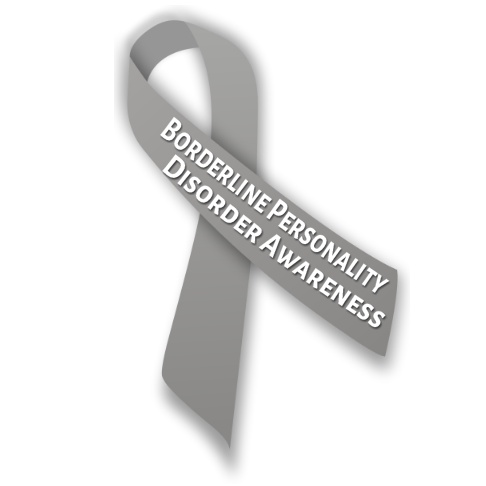 Robert never fully forgave his mother for running away and splitting up the family, despite whatever abuse she endured.
Robert never fully forgave his mother for running away and splitting up the family, despite whatever abuse she endured.
Never-ending cries for help
Robert had a lengthy history of domestic abuse, evictions, firings, and arrests. Screaming and cursing tantrums was his typical response to reminders of money owed or job duties unfulfilled. He bounced from one hotel room to the next, one job to the next, one relationship to the next, filling his pockets with anything that wasn’t nailed down along the way.
It seemed Robert always felt that he was owed something. He showed no signs of loyalty, empathy, or appreciation. And yet, this toxic behavior, Robert spun into a never-ending bid for sympathy. He would antagonize people to the point of anger, then tearfully elicit sympathy from bystanders.
The larger the audience, the more theatrical his performance. When there was no audience, he would create one by secretly calling someone on his cell phone. That person got to listen in only to the other person’s angry response to Robert’s actions. Police were often called, arriving to find a grown man sobbing like a child because the other person was so mean to him. The performance rarely worked, especially when the other person was his bruised and battered pregnant wife. He had two children with two wives who quietly escaped, running to out-of-state family members and filing protection orders.
Police were often called, arriving to find a grown man sobbing like a child because the other person was so mean to him. The performance rarely worked, especially when the other person was his bruised and battered pregnant wife. He had two children with two wives who quietly escaped, running to out-of-state family members and filing protection orders.
Outlook
And throughout all of this, it was clear that Robert firmly believed he was the victim. He felt his actions were justified, and the reactions of others were inappropriate. He was indignant when others didn’t sympathize with him. Any attempt to reason with him would likely result in an explosive attack.
This is one of the main reasons Borderline personality disorder is so challenging to treat. A feedback loop of adverse reactions and consequences reinforces the person’s identification as the victim. They don’t believe the problem lies within their behavior, the suggestion of which ignites the entire arsenal of their defenses.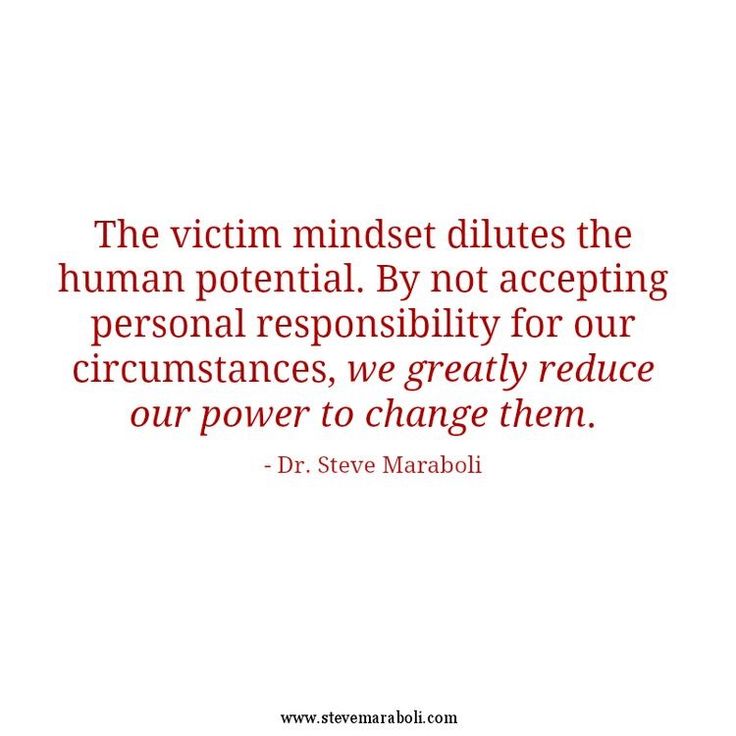 Only when the person recognizes their problematic behavior and chooses to accept critiques and suggestions for improvement can there be much hope in treating this disorder.
Only when the person recognizes their problematic behavior and chooses to accept critiques and suggestions for improvement can there be much hope in treating this disorder.
References
American Psychiatric Association. (2013). Diagnostic and Statistical Manual of Mental Disorders, 5th Edition: DSM-5 (5th ed.). American Psychiatric Publishing. https://doi.org/10.1176/appi.books.9780890425596
Grant, B. F., Chou, S. P., Goldstein, R. B., Huang, B., Stinson, F. S., Saha, T. D., Smith, S. M., Dawson, D. S., Pulay, A. J., Pickering, R. P., & Ruan, W. J. (2008). Prevalence, Correlates, Disability, and Comorbidity of DSM-IV Borderline Personality Disorder. The Journal of Clinical Psychiatry, 69(4), 533–545. https://doi.org/10.4088/jcp.v69n0404
Stern, A. (1938). Psychoanalytic Investigation of and Therapy in the Border Line Group of Neuroses. The Psychoanalytic Quarterly, 7(4), 467–489. https://doi.org/10.1080/21674086.1938.11925367
Related Topics
- borderline
- disorder
- manipulation
- personality
- relationships
- toxic
Why Do People with BPD Self-Victimize?
Self-victimization is a major obstacle for many.
Source: Image by Gerd Altmann from Pixabay
Many individuals with symptoms of Borderline Personality Disorder (BPD) engage in different types of self-victimization. In this blog we will explore three forms of self-victimization that are common in individuals with symptoms of BPD and explore why they do it.
Direct self-Harm
Self-mutilation occurs frequently with people who suffer from BPD. Perhaps the most common form is cutting or burning themselves with razor blades, knives or cigarettes. These actions often occur during periods of very high emotion. These individuals describe the cutting or burning as a way of minimizing emotional pain and claim that it has a calming effect on them.
Sometimes individuals with symptoms of BPD self-harm directly for manipulative purposes. In the following example, Mindy, an adolescent sufferer of BPD, is arguing with her mother Sally because her mother will not allow her to go to an unchaperoned party at a friend’s house.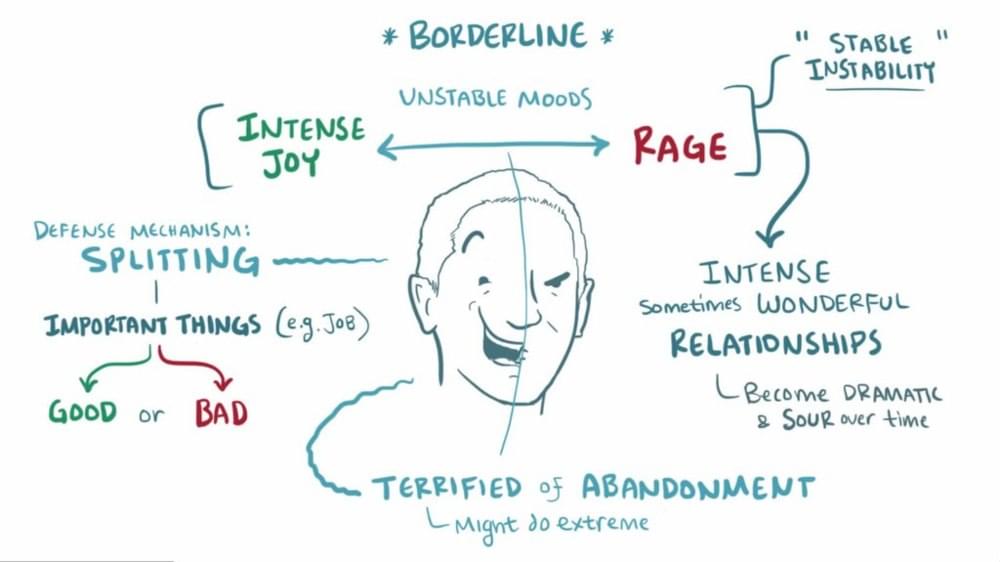
Mindy: I have to eat early tonight. I am going to Ginger’s house to hang out tonight.
Sally: Will there be other kids there?
Mindy: Just a few close friends.
Sally: Boys?
Mindy: I hope so.
Sally: Will Ginger’s parents be there?
Mindy: We can’t have fun with her parents standing over us.
Sally: Where are her parents?
Mindy: They are going away for the weekend.
Sally: You can’t go to a party unless there is a parent there.
Mindy: Mom, all my friends are going.
Sally: Not unless there is parental supervision.
Mindy: They are expecting me.
Sally: You can call them and tell them you can’t go.
Mindy: Everyone will think I am a dork.
Sally: They will get over it.
Mindy: I have to go.
Sally: Not without supervision.
Mindy: If you don’t let me go, I will kill myself.
While it is not common for a child to actually kill herself under these circumstances it is common for them to make a gesture.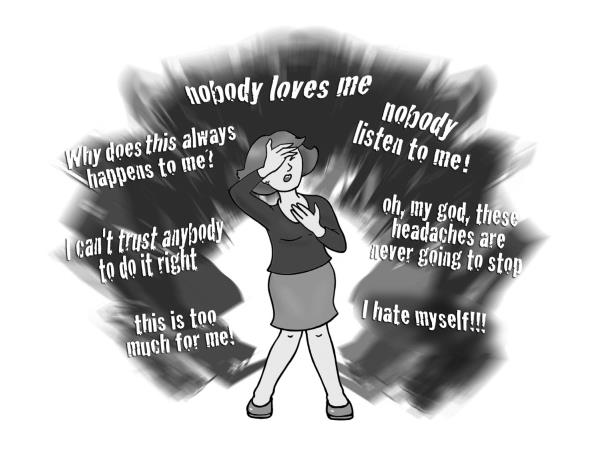 These gestures often include cutting themselves with a knife or possibly taking a bunch of pills, if they have access. One child drank bleach in front of her parents when not allowed to do what she wanted to do.
These gestures often include cutting themselves with a knife or possibly taking a bunch of pills, if they have access. One child drank bleach in front of her parents when not allowed to do what she wanted to do.
Indirect Self-harm
This is a very large category of behavior, all of which involve engaging in activities that are unhealthy. This includes substance abuse as well as engaging in high-risk activities such as promiscuity or breaking the law. It also includes self-neglect, such as eating poorly, not going to school/work or not getting proper medical/dental care. Indirect self-harmful behaviors generally serve the function of expressing their self-loathing. They show the world that they feel unworthy of care and that they don’t care what happens to them.
Projected Self-harm
This is the type of self-harm that causes the most instability in relationships. This involves projecting feelings of self-loathing onto others and then feeling victimized by them. In the following example, Robert is confronting his son Gene for not doing his homework and getting a failing grade. Gene projects onto his father that he is a perpetrator so as to feel victimized by his father. He then blames his father for his poor performance.
In the following example, Robert is confronting his son Gene for not doing his homework and getting a failing grade. Gene projects onto his father that he is a perpetrator so as to feel victimized by his father. He then blames his father for his poor performance.
Robert: Gene, I heard from your teacher today. He told me that you are failing Biology.
Gene: Yeah. He hates me.
Robert: He said that you have not handed in a single homework assignment this term.
Gene: So?
Robert: Is it true?
Gene: I can’t get my work done with you and mom on my case all of the time.
Robert: We are on your case all of the time?
Gene: Yes. “Gene put out the garbage. Gene, do your homework. Gene, clean your room.”
Robert: You didn’t do your homework because Mom and I got on your case to do your homework?
Gene: You are on my case all of the time. You make me feel like I want to die.
In the above example, Gene explains to his father that the reason he is failing Biology is because his parents mistreat him by making him study and keep his room clean (and hence he is a victim).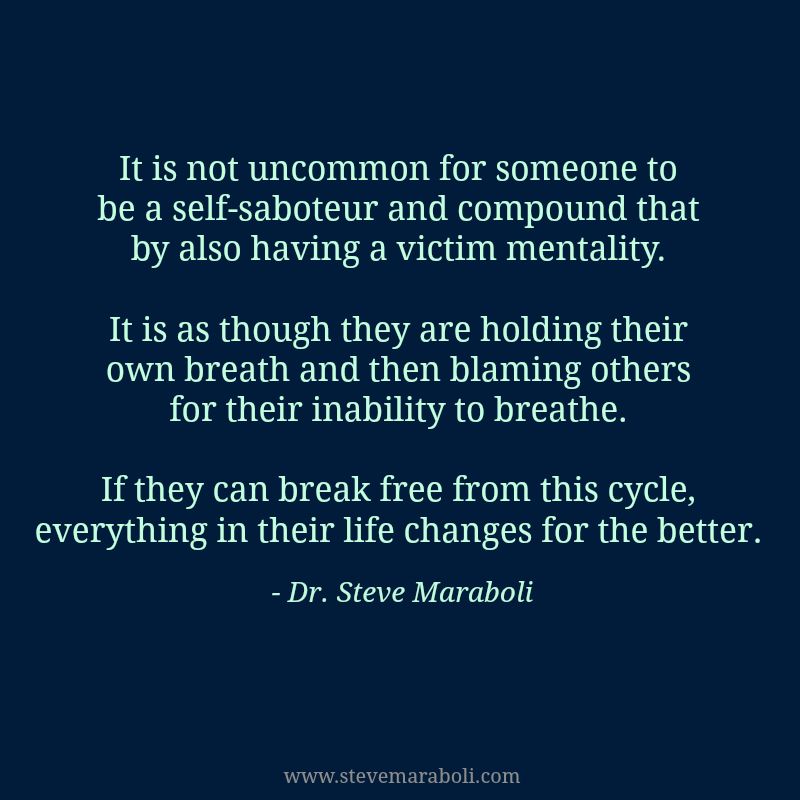 This type of self-blame serves two functions for Gene:
This type of self-blame serves two functions for Gene:
· It helps him avoid taking responsibility for failing his class by blaming his parents.
· It justifies other behaviors, such as lashing out at his parents, because they have ‘victimized’ him.
Many people in Sally and Gene’s position give into the threats of self-harm out of fear that if they don’t, someone they care about will hurt themselves. Unfortunately, when you give into threats of self-harm or suicide you increase the power of making such threats, and increase the likelihood that this mechanism will be used more in the future. It gets them what they want.
Self-victimization is never healthy. Individuals who use this mechanism as a way of getting what they want are sick and need help to find healthier ways of getting what they want. Giving into these threats makes them sicker. The proper response is to recognize self-harm as being a symptom of serious mental illness and get them professional help. This is the only way to truly help someone you love who suffers with this problem.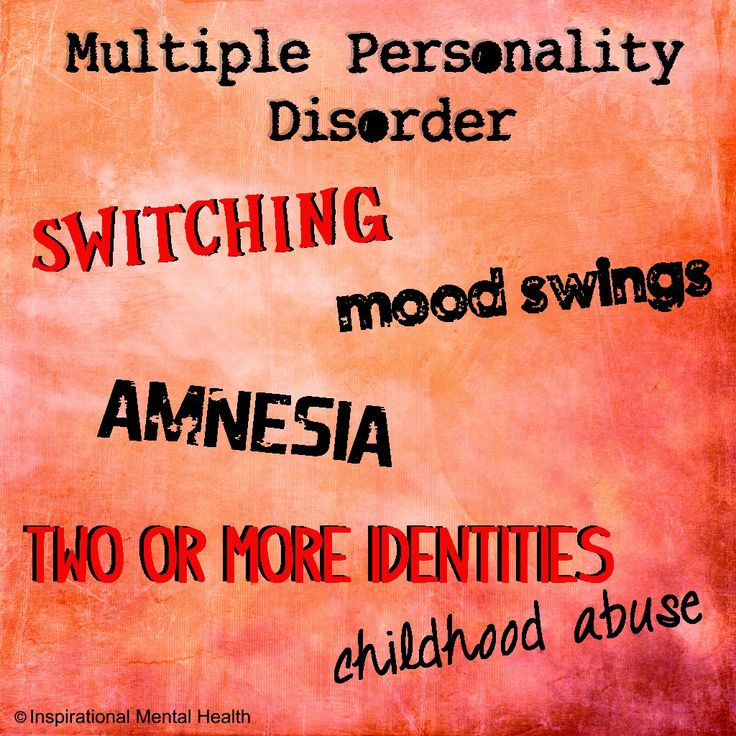
Victim mentality. Victim mentality and Lucifer syndrome Victim mindset
How do you know if your partner has victim syndrome?
"Detecting" the victim is often difficult, because none of us, in fact, does not object to the partner complaining to us about his previous relationship. If you're dating a man, for example, and he often tells you creepy stories about his ex-girlfriend, then you're secretly glad that he doesn't miss her or compare you to her. But if your partner has a habit of blaming others and doesn't take even partial responsibility for problems, beware: the next "culprit of all the misfortunes" will be you.
Paradoxically, no matter how people with victim syndrome complain about the lack of love and understanding for them in the past, it will be difficult for them to accept your love and support. Victims love to suffer. No matter how hard you try to comfort them, they refuse to cheer up. Holding on to their pain gives them the illusion of power over their hurters.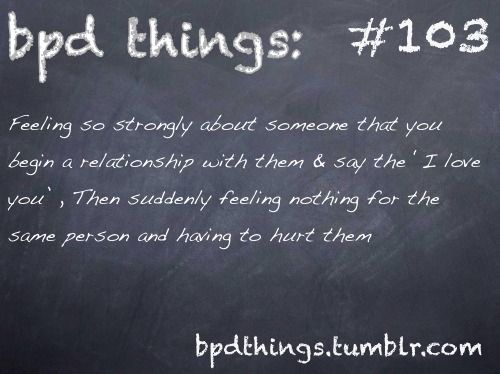
Victim people are an unfortunate choice for a partner, although loving them can make you feel necessary and indispensable. All their complaints about what they had to endure from others are only a reflection of their low self-esteem.
Victim psychology in relationships
Your partner rarely expresses dissatisfaction directly with me or others; he is more likely to complain about "circumstances" or sulk silently. He walks around miserably and makes me use pliers to extract information from him.
Your partner always finds something to get upset about in life, and it's rare that days or weeks go by without some event that puts him in a bad mood.
Your partner has victim syndrome because he often feels sorry for himself and does not understand why all sorts of troubles happen to him.
Your partner has difficulty making decisions; he often spends more time complaining about what might happen than he does the actual action.
Your partner often feels like a prisoner of circumstances that seem to be the cause of his misfortunes, and sees no way out of this trap.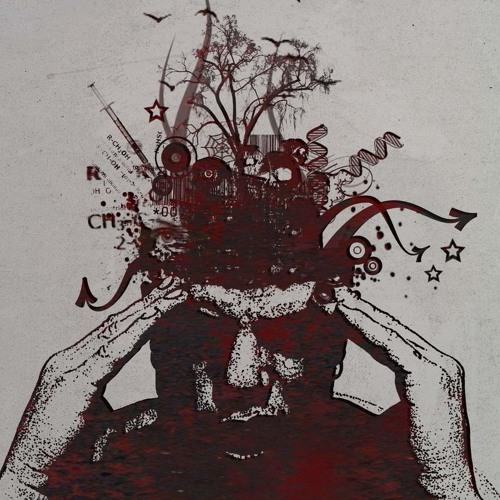
Your partner still blames people from the past (parents, ex-girlfriends, friends) for his unhappiness and the way his life turned out.
Your partner has the victim syndrome because he is jealous of other people's success and happiness and often compares himself to them, and as a result feels bitterness or depression.
If you believe that at least one or two of these statements are true, then your partner has a slight trait of the victim, and you should discuss this with him so as not to accumulate feelings of irritation and resentment.
If three to five statements are true, then your partner has a serious problem with the victim mentality. Make sure you don't enjoy playing the role of "savior" and that you don't subtly prepare yourself to feel the futility of your efforts.
If you are convinced that six or more of these statements are true, then you love a professional victim. Talk to your partner - he will definitely perceive this as an attack, get upset and accuse you of not understanding and not loving him, in other words, he will perceive it from the standpoint of the victim! If you do not yet feel like a puppet in his hands, offended and disappointed, you will soon feel it.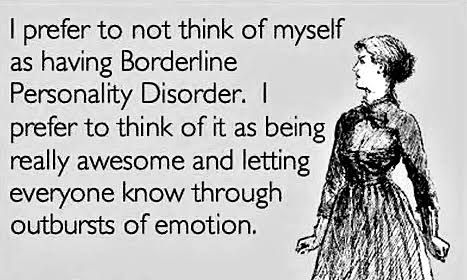 Your partner needs help urgently, and so do you.
Your partner needs help urgently, and so do you.
Signs of a victim in a relationship
Symptoms of a victim mentality
Victims do not take responsibility for the events or circumstances of their own lives. They feel sorry for themselves, they complain, they eat, they sleep, they get depressed - they do everything except trying to change the state of affairs. Try to advise the person-victim what he should do to cheer himself up or solve some problem - in return you will receive a whole list of reasons why your suggestions will not work. Some victims are waiting for you to save them and overcome all difficulties for them; others need nothing more than sympathy, as the only way they know how to get attention is to make someone else feel compassion.
People with victim syndrome are great at blaming others for their problems. From the point of view of a human victim, someone else is always to blame for everything. They blame their parents, ex-spouses, children, friends, health, the economy, and everything else for being unhappy and disappointed in their current lives.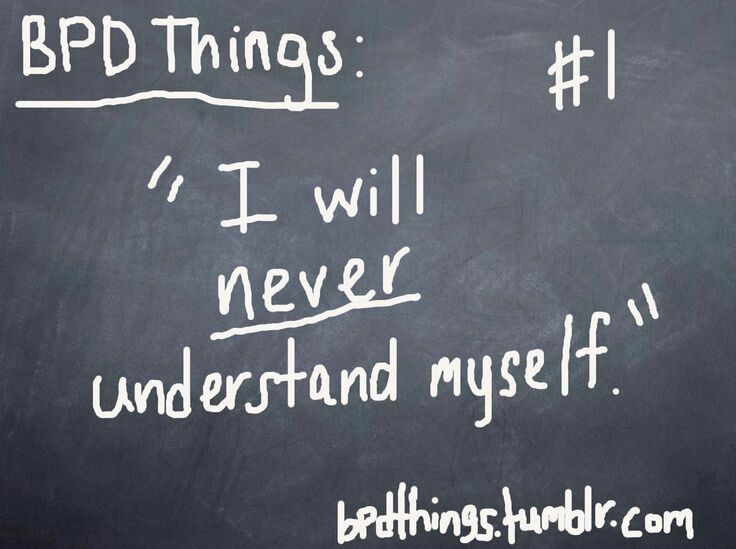 Some do it openly, honestly expressing their dissatisfaction. Others - veiled, simply doing nothing in order to improve their own lives.
Some do it openly, honestly expressing their dissatisfaction. Others - veiled, simply doing nothing in order to improve their own lives.
People with victim syndrome perceive life as a situation of confrontation. The whole world is against me, the victim thinks. A person with a victim mentality makes it look like the purpose of other people's existence is to ruin his life, interfere with his happiness, and disappoint him. For many in childhood, this was true, but when the person-victim transfers this childhood perception to his adult relationship, he inevitably turns others against himself. Some victim people go as far as choosing partners who torture them and thereby reinforce their belief that they are really victims. Often people-victims approach only with other victims, because only they meet with understanding.
Human victims express their anger in a veiled way. People with victim syndrome would rather appeal to your feelings of guilt with their unhappy and resentful appearance than risk losing your sympathy by showing you their true displeasure.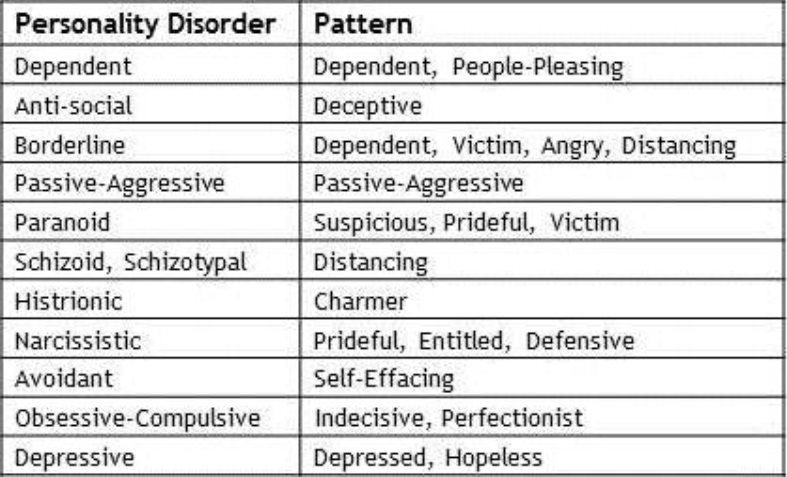 They know how to speak in such a way that it does not sound harsh or aggressive; hostility will be transmitted implicitly, while maintaining outward friendliness.
They know how to speak in such a way that it does not sound harsh or aggressive; hostility will be transmitted implicitly, while maintaining outward friendliness.
For example, a woman is upset that her partner did not celebrate her birthday too solemnly. And she says: “Probably, we were just brought up differently. Some families teach children to respect the feelings of others, while others don't." When a friend reproaches her for calling him insensitive, she responds with bewilderment: "Darling, did I say that you are insensitive. I'm just saying that everyone is different." She would have acted much more honestly if she had said: "I was mortally offended by you - on my birthday you got off with some kind of lousy postcard and made me feel that I was nothing special for you."
Victim position in relationships
People with victim syndrome are hopeless pessimists. “I can’t”, “I won’t succeed”, “Never in my life” - these are common phrases that are often found in the speech of people who are victims.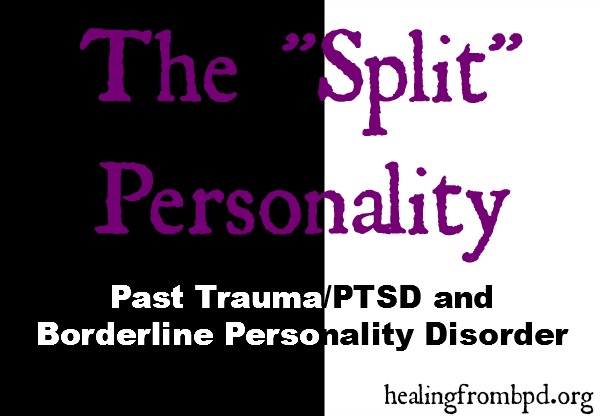 Victims often play for time because they are afraid to act. It may seem that they are looking for your support, but then you realize that they do not expect you to help, but salvation. It is possible that human victims were abused sexually, physically or emotionally as children. On a subconscious level, their impotence then dictated to them such a judgment about themselves: “I am powerless. Others dominate me."
Victims often play for time because they are afraid to act. It may seem that they are looking for your support, but then you realize that they do not expect you to help, but salvation. It is possible that human victims were abused sexually, physically or emotionally as children. On a subconscious level, their impotence then dictated to them such a judgment about themselves: “I am powerless. Others dominate me."
Victims repeat the same negative patterns both in love relationships and in life, because they do not bother to look for the source of these patterns. When faced with a problem, a strong person asks the question: “Why is this happening and how can I change it?” The human victim asks, "Why is this happening to ME?" In a crisis situation, the person-victim gets hung up on the aspect of persecution, not trying to figure out how it arose and what can be done to prevent its recurrence in the future; thus he deprives himself of the opportunity to learn from his mistakes.
What should I do if my partner has victim syndrome?
Love for a person with a victim syndrome
We all secretly carry a “person-victim” inside us.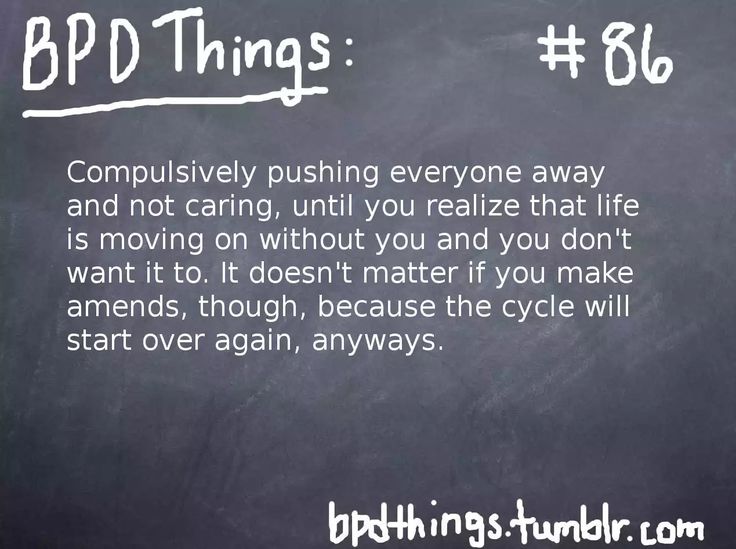 But when this schema dominates someone's personality, it begins to adversely affect the person's mental health and love relationships. Your relationship won't be a healthy one-to-one relationship until your partner gets over the victim. As with other harmful flaws, the victim mentality can be successfully dealt with through firm commitment and perseverance if the partner is willing to change himself. But don't be fooled: if you leave things as they are, this pattern will not disappear by itself. Those who are in a relationship with a victim partner learn the hard way that, over time, empathy turns into indifference.
But when this schema dominates someone's personality, it begins to adversely affect the person's mental health and love relationships. Your relationship won't be a healthy one-to-one relationship until your partner gets over the victim. As with other harmful flaws, the victim mentality can be successfully dealt with through firm commitment and perseverance if the partner is willing to change himself. But don't be fooled: if you leave things as they are, this pattern will not disappear by itself. Those who are in a relationship with a victim partner learn the hard way that, over time, empathy turns into indifference.
TOP 10 health benefits of life. Sometimes you can!
TOP drugs that can increase the length of your life
TOP 10 methods of prolonging youth: the best anti-aging products
SPORTS AND NUTRITION
Victim mentality
You must have often heard the term “Psychology of the victim”. Not everyone has a reliable idea of what it is and how it can relate to a particular person.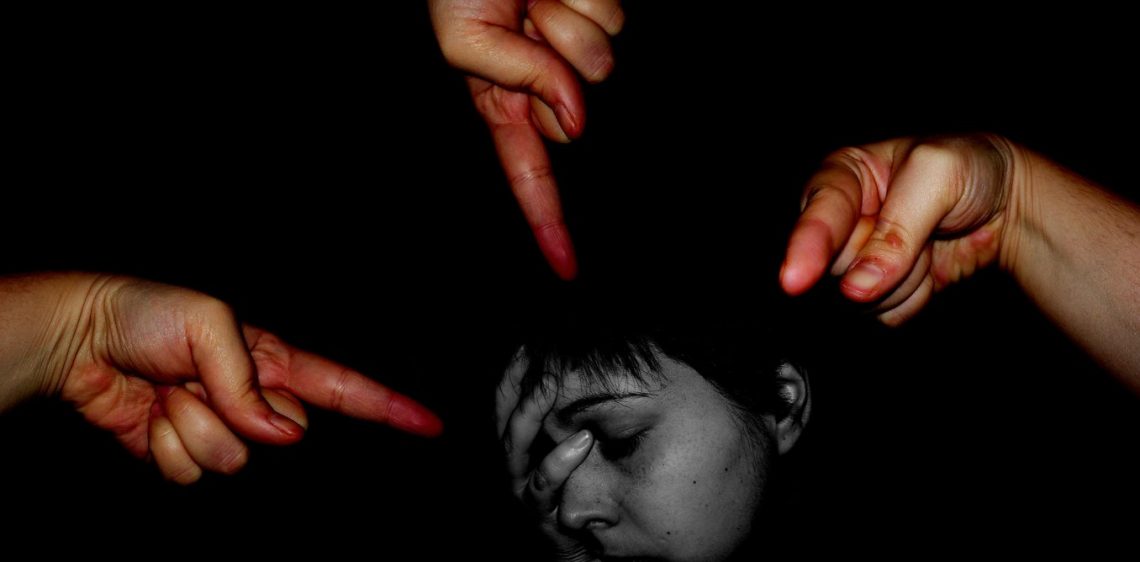 In fact, we are not talking about the victims of some terrible events - gang attacks or disasters.
In fact, we are not talking about the victims of some terrible events - gang attacks or disasters.
The term "victim psychology" refers to people who avoid taking personal responsibility for their own actions and tend to blame others for everything.
The behavior of a person with a victim mentality can be described as a “victim mentality”. First of all, this applies to the representatives of the beautiful half of humanity, i.e. - to us, dear friends. There are many "victims" among men, but among women there are much more such people. This is what I want to talk about today. If you notice such manifestations in yourself, teach them to resist and deal with them. If you are a mother, knowing the causes of these behaviors will help you adjust your parenting practices to prevent your child from developing a victim mentality, because it will make him miserable and create problems in all aspects of adult life.
Causes of the emergence of the psychology of the victim
The roots of the emergence of the mentality of the victim lie, as a rule, in deep childhood.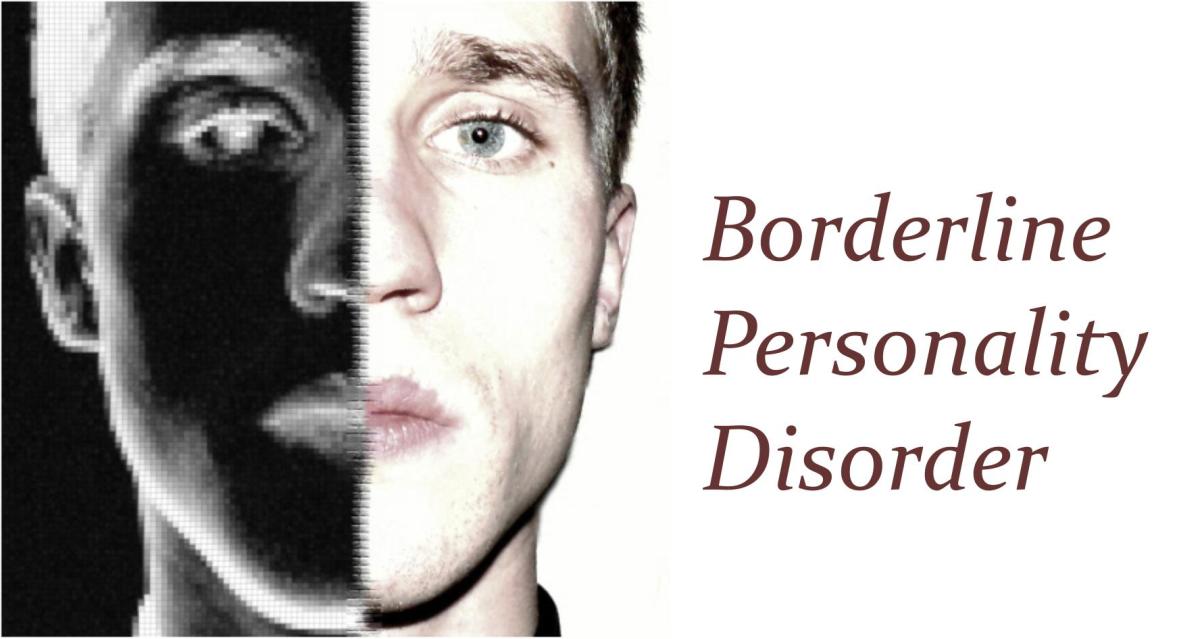 And, as always, the blame lies with the parents and caregivers. If parents cultivate a constant sense of guilt and shame in their children, overly criticize and hardly encourage or praise them, the child's consciousness forces the child to defend himself. This defense manifests itself in the form of "shifting" the blame for one's own mistakes onto someone else. Often children come up with a character who, according to them, is to blame for all the mistakes they make. If measures are not taken to correct the situation, then with age, as the child's impressionability decreases, the child proceeds to shifting the blame for all his mistakes and failures to other people.
And, as always, the blame lies with the parents and caregivers. If parents cultivate a constant sense of guilt and shame in their children, overly criticize and hardly encourage or praise them, the child's consciousness forces the child to defend himself. This defense manifests itself in the form of "shifting" the blame for one's own mistakes onto someone else. Often children come up with a character who, according to them, is to blame for all the mistakes they make. If measures are not taken to correct the situation, then with age, as the child's impressionability decreases, the child proceeds to shifting the blame for all his mistakes and failures to other people.
An adult with a victim mentality already has a transformed consciousness and a distorted perception of reality. His mental defense mechanisms work in the light of the “memory” of childhood traumas, and he, trying to rid himself of the painful feelings of guilt and shame for his own miscalculations and mistakes, goes into “deaf defense”, blaming other people for everything. In women, this mental state is especially acute. You cannot envy such women neither husbands nor work colleagues, but at the same time they themselves suffer the most.
In women, this mental state is especially acute. You cannot envy such women neither husbands nor work colleagues, but at the same time they themselves suffer the most.
Manifestations of the victim mentality
On an ordinary everyday level, the victim mentality manifests itself in cases well recognizable by most of us. For example, getting angry with her husband, losing her temper and “in her heart” breaking a mountain of dishes, such a woman immediately shouts to her husband: “Look, what you brought me to!”. Having severely beaten her son or daughter, and feeling remorse for a severe punishment incommensurable with the child's misconduct, a mother with a victim mentality tends to blame anyone but herself for what happened. In the same way, the “victim” behaves towards his family members, accusing them of all “mortal sins”, and even of his own alcoholism or drug addiction.
The situation is further aggravated by the fact that the “victim” is very often obsessed with questions of higher justice and morality. As a rule, she believes that all the good things that happen to her, she rightfully deserved, and all the bad things are a manifestation of thoughtless cruelty and injustice on the part of other people.
As a rule, she believes that all the good things that happen to her, she rightfully deserved, and all the bad things are a manifestation of thoughtless cruelty and injustice on the part of other people.
It is very difficult or even impossible for a person with a victim mentality to take responsibility for even some of their own problems, because this would leave them vulnerable to painful feelings of shame, guilt, or fear of being rejected for doing the wrong thing.
While the behavior of the “victim” may appear selfish, illogical, or narcissistic from the outside, it is important to understand that this person is actually deeply unhappy and his unhealthy reaction is caused by pain and feelings, not arrogance.
Like a hare running in the headlights, the "victim" is actually paralyzed and unable to turn off the road - look at himself from the outside, analyze the situation and admit his own wrong. Instead, she is so deeply immersed in the search for justice that she completely dismisses the most convincing arguments and not only does not try to solve her problem, but also exacerbates it.
How to rid yourself of the victim mentality
You can rid yourself and others of your own victim complex if you really want to. This is one of those cases where a person can become a psychotherapist for himself.
The first step is to recognize that you have a victim mentality and to resist guilt and shame with an effort of will to admit your mistake. Do this all the time for a long time, constantly pulling yourself up. Such work on yourself will undoubtedly give positive results in just a few days.
The second step is to ask for help from relatives and friends to help you get rid of this mental condition. Let loved ones guide you and pay attention to each case of attempts to "shift" responsibility for their own mistakes onto someone else's shoulders. At the same time, they must be patient and tolerant towards you, because your first reaction to a remark can be uncontrollable and spontaneously negative.
The third step - if you do not feel the strength to get rid of the mentality of the victim on your own, but at the same time, you understand that you need to get rid of it - contact a psychologist.
Janet's notes. "Victim mentality"
This planet mainly attracts two kinds of beings - those with a victim mentality and those with an oppressor mentality. To be a victim, you need oppressors. To be an oppressor, you need victims. Together they create balance in God-Mind.
This planet is designed as a place where beings with a victim mentality can learn to overcome it. Therefore, higher-level creatures will not interfere, because the bearers of the victim mentality need to be able to work on this on their own. To intervene would be to take away their lessons from these people. High level beings will watch, guide and teach you if you approach them, but that is all they can do. They are not here to save you and your planet.
If someone tells you that he wants to save you, it means that he interferes with the development of your soul. Only you can save yourself from the victim mentality. Only you and the lessons that you prepare for yourself will help you to know this mentality. Only you can learn the lessons that will help you eventually get rid of feeling like a victim. Nobody wants to help you. Do not believe the words of those who promise to do so.
Only you can learn the lessons that will help you eventually get rid of feeling like a victim. Nobody wants to help you. Do not believe the words of those who promise to do so.
When you learn to overcome the victim mentality, your thinking will no longer attract oppressors. The more determined you become in your determination to remain a victim, the more difficult the lessons you will draw upon yourself to get rid of this mindset. In a metaphorical sense, this means that you will need a thicker and stiffer belt in order for you to finally learn your lesson.
You need to be humiliated, offended, and finally angry enough to be able to stand up for yourself and declare that you will no longer be a victim for anyone, nowhere, ever! Perhaps when you finally get tired of all this, you will get rid of the victim mentality by saying: “I don’t give a damn about the opinions of others! I will say what I think, no matter what! I will take care of myself no matter what!”
Sometimes people get so bad that instead of breaking free of the victim mentality, they decide to become oppressors when the opportunity presents itself. And then the circle closes. People who have been oppressed find themselves another victim, because this gives them a sense of control. So they relive their previous experiences when they felt they were out of control. They become villains in order to be victorious for a change. Of course, this abrupt transformation from victim to oppressor again creates an imbalance.
And then the circle closes. People who have been oppressed find themselves another victim, because this gives them a sense of control. So they relive their previous experiences when they felt they were out of control. They become villains in order to be victorious for a change. Of course, this abrupt transformation from victim to oppressor again creates an imbalance.
Ideally, it is necessary to find a golden mean, a balance between the victim and the oppressor. In the Mind of God, victim and oppressor are two sides of the same coin. In this case, two separate soul personalities are needed to maintain balance in God-Mind. One is on the side of the victim, and the other is on the side of the oppressor. You need to find a balance in yourself so that this balance in the Mind of God is maintained by one soul personality, and not two.
Yes, you must learn to speak your mind and not let anyone walk on you. Yes, sometimes you have to be harsh and cruel in your words, and sometimes in your actions.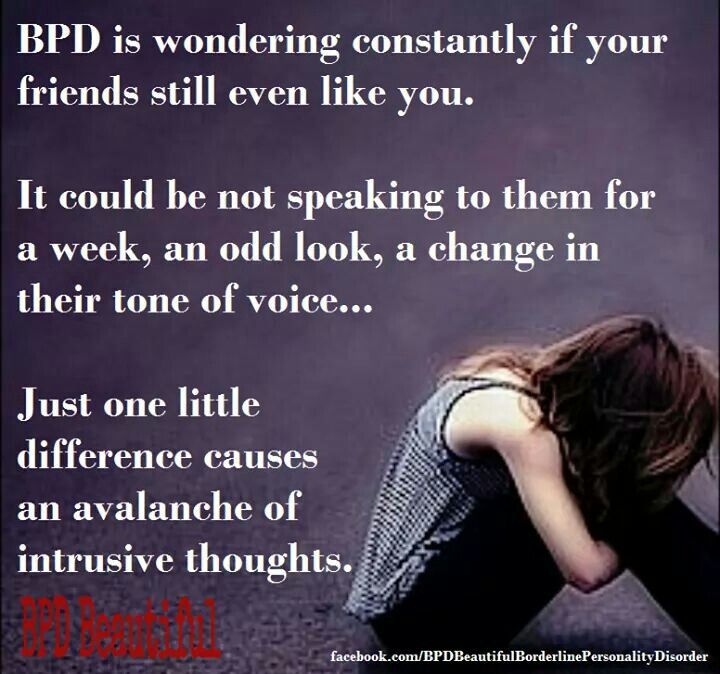 But when you have to behave in this way, take an objective position, striving to do the best for everyone involved in the situation in order to achieve the goal and at the same time cause as little pain as possible. Boundaries need to be set.
But when you have to behave in this way, take an objective position, striving to do the best for everyone involved in the situation in order to achieve the goal and at the same time cause as little pain as possible. Boundaries need to be set.
What are your limits? Who crosses them and how? Is there an aggressive person in your life whom you avoid for being too assertive and self-confident? Why are you avoiding this person? Why not get rid of the victim mentality and give him your opinion? What if your heart is pounding and your palms are sweaty? But what if your knees are shaking so much that you almost fall, and your voice becomes trembling, squeaky and barely audible? So you need to shut your victim mentality before it shuts you up. Learn to be active, not passive.
When you allow others to mistreat you, you become angry, sullen and withdrawn. Then you take out your anger and frustration on innocent people. Sometimes your body gets sick because you suppress your feelings, isolate your body, or perhaps stop eating.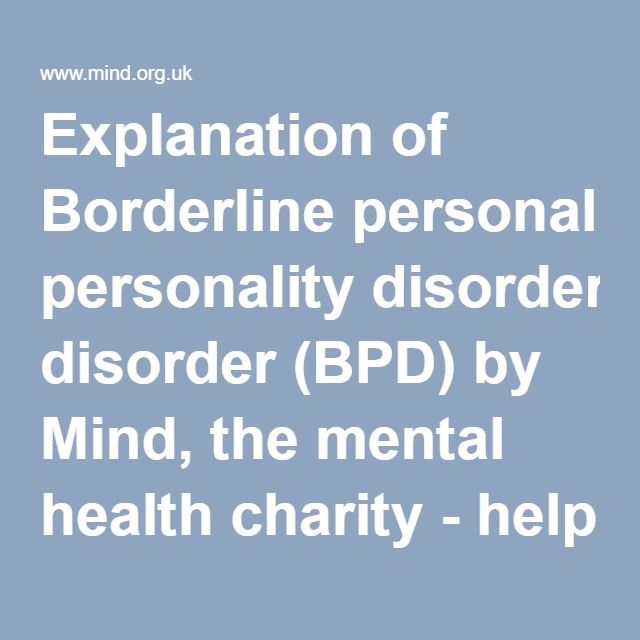 Whatever the case, you are suffering.
Whatever the case, you are suffering.
But some part of you thinks you deserve this suffering. Some part of you enjoys pain and self-flagellation. Some part of you likes it, otherwise you wouldn't behave like this. Some people create others to hurt them, sometimes physically, sometimes emotionally, sometimes both. Sometimes people hurt themselves, turning into an autonomous, fully functioning unit with a victim mentality. Some do it with great success.
Why do you feel so bad about yourself that you think you deserve to suffer, be alone, feel guilty, sick, overweight or underweight? Did it start in this life or earlier? Explore these feelings and allow yourself to release them. This physical reality is your chance to overcome them. The more you ignore the situation, the harder it will be for the lessons you draw on to beat it out of you. You came here to study, so study. Stop moaning and crying and complaining because some part of you is enjoying that too.
Pain can be great fun.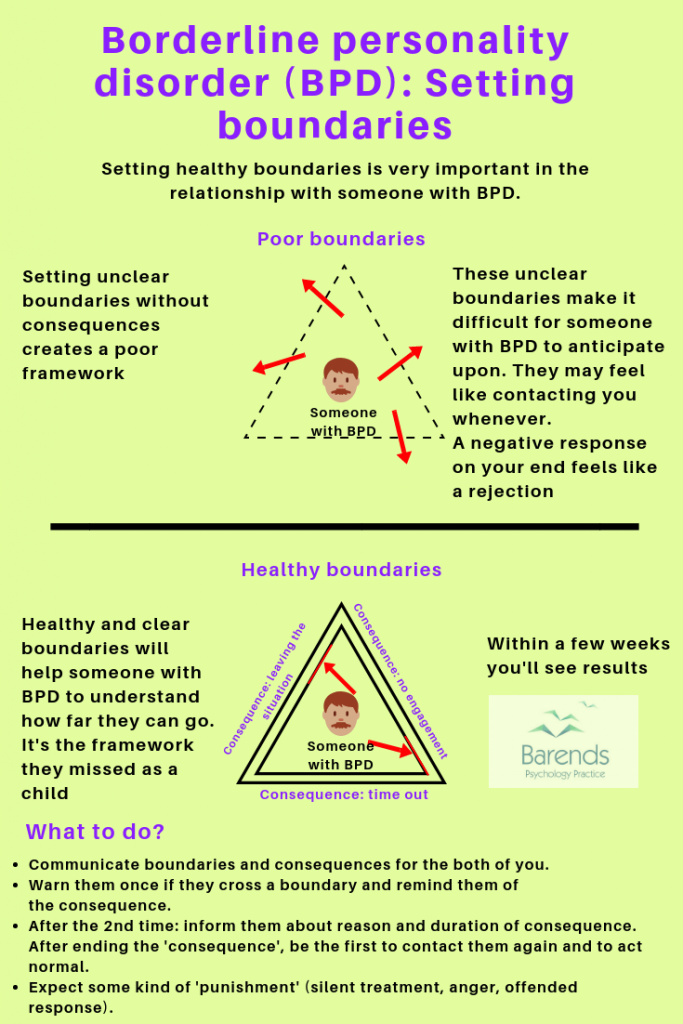 You can run from one doctor to another trying to find a cure for something that cannot be cured with your current mindset.
You can run from one doctor to another trying to find a cure for something that cannot be cured with your current mindset.
Bad luck can get a lot of attention and sympathy from other people. Terrible circumstances will make someone pay attention to you. If you don't get a raise or promotion, you can justify not getting promoted. You may complain about loneliness when dating someone who doesn't understand you, or when you don't date anyone at all. But this self-imposed isolation gives you time for selfish self-care without outside interference. This can be said about the desire to have children with the inability to do so. Part of you does not want to live with a spouse, even a loving spouse, or children, because if you ALL wanted this, if it was in your mindset, you would
Victim, victim, victim! You can repeat indefinitely ... Stop being a victim.
Find a new source of entertainment. Get rid of such thinking in order to see new perspectives of development - so vast that you cannot even imagine or realize them. You must get rid of the old to make room for the new. Nobody will do it for you. No one will save you from yourself.
You must get rid of the old to make room for the new. Nobody will do it for you. No one will save you from yourself.
IS YOUR MIND CONTROL?
Do you think "mind control" is something sinister that people in dark and mysterious places are planning for an unsuspecting victim? Do you read similar stories of others with interest, believing that this has nothing to do with you? Remember: if you are reading about it, then this is part of your world. If it's part of your world, it's a reflection of some part of you, otherwise it wouldn't exist. So is your mind subject to control by dark forces?
To qualify, you must be easily controllable. This is true? What is your thinking? Are you in control of your life or is your life controlling you?
If anything controls you, your thinking is arranged in such a way that any force can use it and manipulate it. This power only needs to enter your aura through a hole in your mind. In order to close these holes and correct your thinking, you need to find out what is controlling you in your life - and stop it.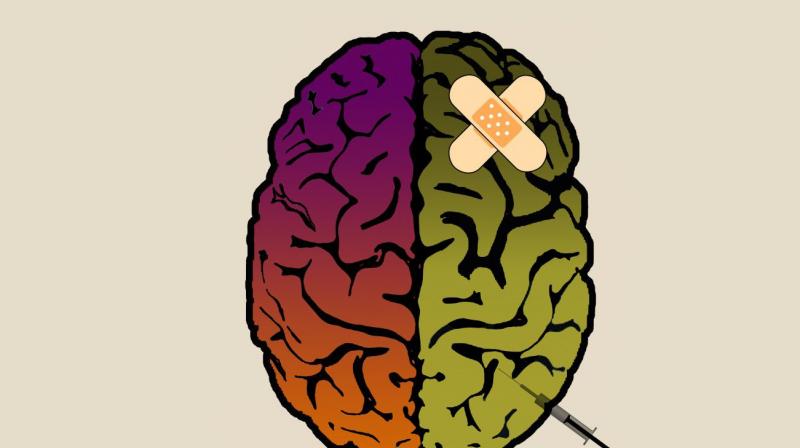
What controls you? Human? Anyone who pulls your strings or pushes your hidden buttons controls you. Anyone you allow to overwhelm or belittle you controls you. When you react to their manipulation, you are in control. That person controls you. It can be a parent, spouse, child, relative, colleague or neighbor.
Are you controlled by your emotions? If the balance of emotions is disturbed, they can create their own sub-personalities. Each emotion has its own color, sound, speed and archetype (symbol) in your aura. Anger is red, fear is yellow, envy is green. Each time you experience these emotions without communicating them to your Oversoul, you are feeding the energy of these sub-personalities. Anger gets stronger, envy gets stronger, fear gets stronger. Now they control you. You can promise anything, but what happens when someone or something presses your button? Suddenly, anger, fear or envy takes control of you. You have lost the fight. Your emotions have taken a place at the helm.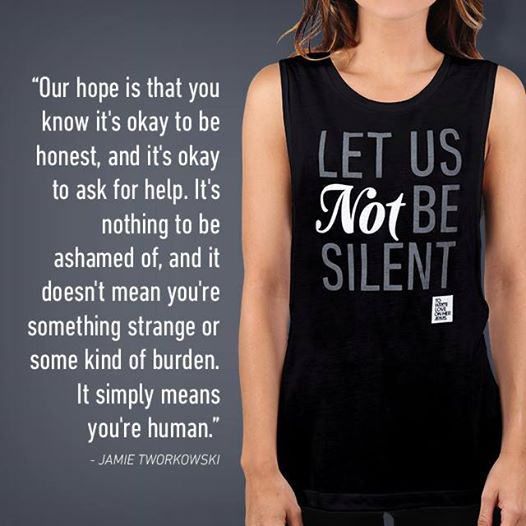
You may be controlled by illness. Do you need illness in order to feel important or to receive attention and love? Do you need chronic diseases from which it seems that you will never be cured? Or as soon as you get rid of something, how does something else immediately appear in this place? What part of you needs that kind of control and allows it?
Are you controlled by alcohol and drugs? Or tobacco? Sex? There are support groups for alcoholics, drug addicts and sexaholics, as well as shopaholics, gamers and kleptomaniacs. There are support groups for people suffering from bulimia, anorexia and obsessive-compulsive disorder. Name any disorder or bad habit - at least someone will definitely be under their control. Do they control you?
Are you controlled by food? This will not necessarily be manifested through excess weight. Can you go without chocolate or sugar for at least one day? Can you fast for 24 hours with nothing but water? You will not die of hunger.. . So are you capable of it?
. So are you capable of it?
What about fashion? Do you chase after the trendiest clothes, hair and home furnishings without even thinking if you like them? And then there are cars, motorcycles, trucks, boats - the list is endless.
Or trendy short-lived hobbies, whether it's piercings, tattoos, buying things and knick-knacks that will be useless before you even take them out of the package. Do you feel the need to have everything that others have?
Plastic surgery controls people. They remake everything and remake every part of their body until there is nothing left to remake. And then they start all over again.
Some people start exercising and can't stop. They exercise constantly, sometimes building up such muscles that Hercules never dreamed of. Others do it until not a single gram of fat remains in their body and muscle tissue, ligaments and internal organs begin to break down.
Do you use and control your experience or do you use and control your experience? This is the whole point.
If something or someone exercises control over you in any form, you become a prime candidate for mass or individual mind control. When you are in control of yourself, no one and nothing can control you. Everything is acceptable in moderation, but when something takes over you to the point that it starts to control you, you subconsciously create a belief that says, “outside forces can and do control me.”
This is how holes are formed in your thinking and aura, through which those who are able to read such information understand that you are an ideal candidate for mind control. Learn to place yourself at your center with your breath. Find the strengths of your thinking and those that need to be strengthened. Strengthen yourself in the power of your own Oversoul and the Mind of God. Take control of absolutely everything that controls you, without forgetting to maintain balance. You can be led astray in every imaginable way. These are your tests.
Watch your progress.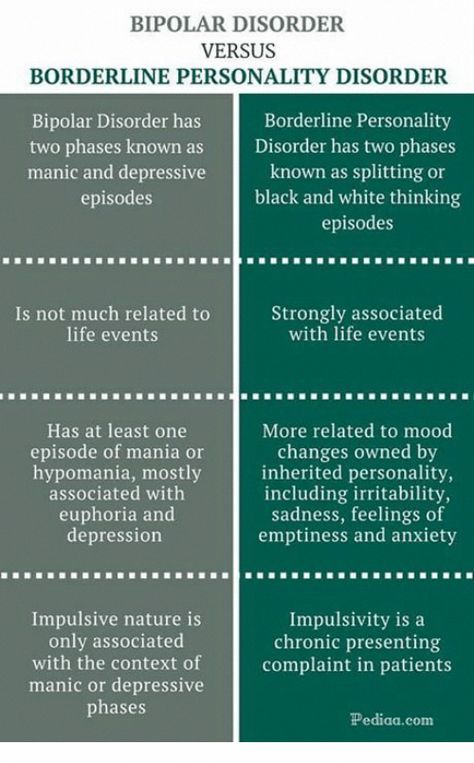 The more you observe yourself, the less external observers will interfere and do it for you. When your defenses are weakened, someone or something deliberately and happily pushes you out of your center.
The more you observe yourself, the less external observers will interfere and do it for you. When your defenses are weakened, someone or something deliberately and happily pushes you out of your center.
You exist in physical reality also to find out who and what you are. When you are pushed out of your center, you realize who you are not. If you are out of your inner center, others can turn you into whatever they want. They can, like clay, mold you into the person who will meet their goals. You will be so busy with this modeling that you will not have time to realize what is happening.
Only when you stand firmly inside your inner center and control absolutely all aspects of your life, all the holes in your thinking are completely closed. When this happens, no one and nothing can control you. But even when the door is closed to visitors from the outside, remember that they will still knock on it.
Only YOU can prevent them from entering.
(From the notes of Janet Diane Morya-Swerdlow)
Harmony of Awareness School
There are two main extremes that do not allow a person to open up during life: the mentality of the victim and the Lucifer syndrome.
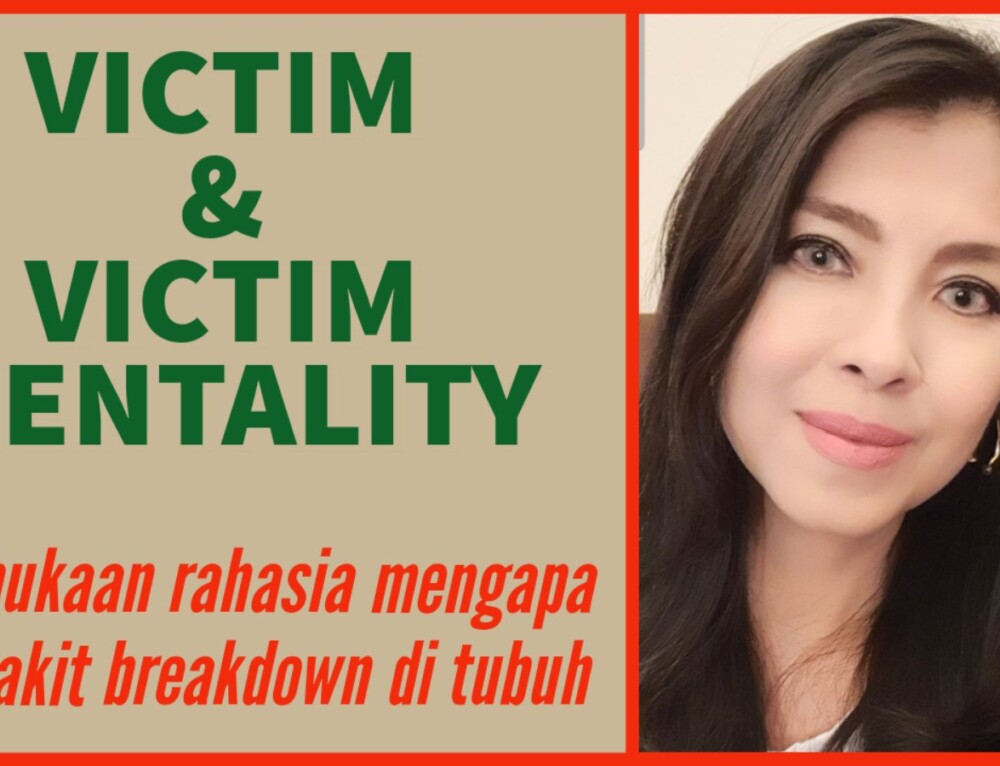
Basic behavior patterns of victims.
Addiction
Transfers personal responsibility for his life to other people, using his inability to get their support and attention. He entrusts his existence to others, while constantly reminding that he is helpless and should not be forgotten. Manipulates people even in adulthood, pressing on the guilt of another person. His usual speech goes like this: “If I had health (money, time, knowledge or any other resource), then I would definitely help you, otherwise my life turned out worse than yours, you can’t turn away from me I'll be lost without you." The people he addresses develop a feeling of guilt that everything is fine with them - as a result, they make concessions and indulge the scammer.
Toadiness
Constantly yielding and agreeing with the wishes of others. A completely lost soul, as he traded his inner nature for social approval. As a result, there is a lack of an inner core and self-realization, which leads to a constant search for approval from the outside. One can say about such a person: "Today is ours, tomorrow is yours." Nothing can be trusted, can betray at any moment. He cannot remain alone, because he understands that he is a dummy. Completely lost individuality.
One can say about such a person: "Today is ours, tomorrow is yours." Nothing can be trusted, can betray at any moment. He cannot remain alone, because he understands that he is a dummy. Completely lost individuality.
Obsessiveness
Compensates for low self-esteem by becoming responsible for others. He likes to cite himself as an example as a person who will go to the fire for his friends. But these are just words. Focusing on others allows you to mask all your unresolved problems. Usually he does not love himself, therefore he requires others to love him, thereby maintaining the illusion that life is not without meaning. If a person does not live up to their expectations, he turns him into his enemy and will fight with him until the end of his life. Judgment is the favorite activity of this category.
Control
Feels safe only by controlling everything and everything. He goes through life, thinking that he is always right, and only others are wrong. A real dogma, unnecessarily suspicious, cannot trust anyone and rely on someone.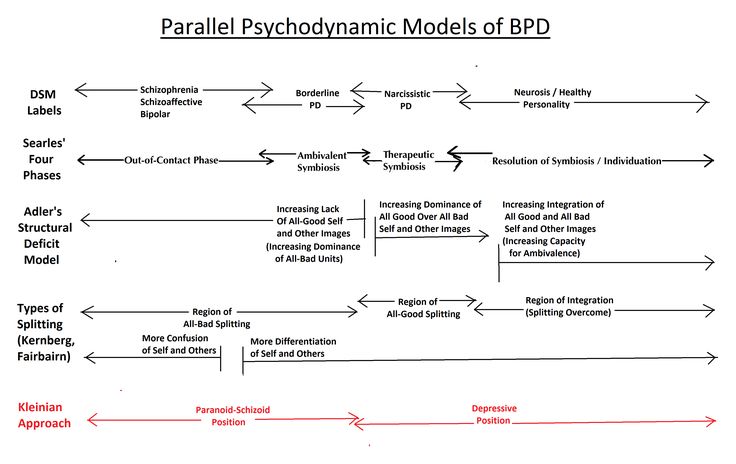 As a result, he depletes his nervous system early, which leads to a decrease in health. Since everything has its own opinion, it falls into the sphere of stereotypical thinking, closing itself off from life and its miracles in advance. In old age, he becomes a petty, obnoxious tyrant.
As a result, he depletes his nervous system early, which leads to a decrease in health. Since everything has its own opinion, it falls into the sphere of stereotypical thinking, closing itself off from life and its miracles in advance. In old age, he becomes a petty, obnoxious tyrant.
The mentality of the victim is based on the fear of losing the feeling of being needed and the attention to oneself. If you notice similar shortcomings in yourself, you need to do something about it. The oppression of the chakras will not lead to anything good. Not only will energy constantly circulate below, but the mechanisms of premature aging and decline in health will also start. I'm not saying that on an emotional level, depression, despondency, self-pity, resentment, melancholy, sadness will become your life companions.
You must understand that nothing in the outside world will change by itself until you change from within. And so the main task at the first stage will be to bring the request to zero.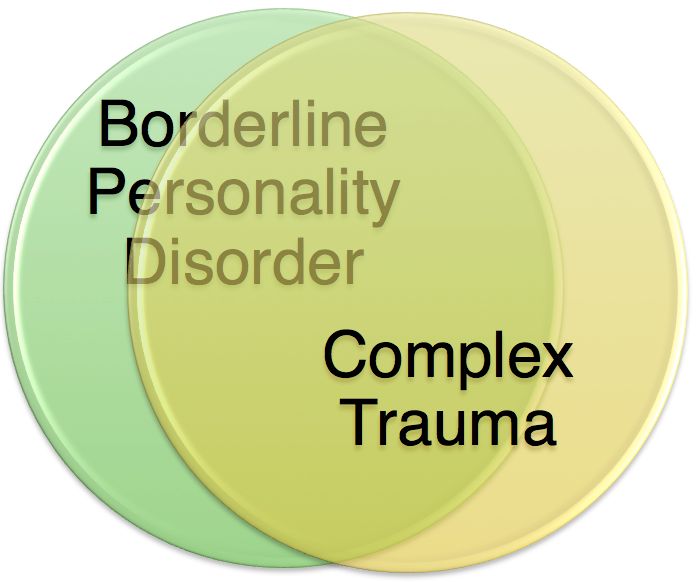 Expectations always give rise to claims, and at the same time, a sense of self-importance torments. Your idea of the world may have nothing to do with the world. So provide the Whole by itself, and it will give you what you need, and not what your false ego, inflamed with personal ambitions, painted. To bring yourself into a state of inner balance, you need to ask God to take the lead in your life path. If you have faith, then the state of humility and humility will help you find yourself, and then you need to reveal your potential within the framework of your destiny, not forgetting to enjoy life and its games.
Expectations always give rise to claims, and at the same time, a sense of self-importance torments. Your idea of the world may have nothing to do with the world. So provide the Whole by itself, and it will give you what you need, and not what your false ego, inflamed with personal ambitions, painted. To bring yourself into a state of inner balance, you need to ask God to take the lead in your life path. If you have faith, then the state of humility and humility will help you find yourself, and then you need to reveal your potential within the framework of your destiny, not forgetting to enjoy life and its games.
If the first extreme blocks the flow of energy for a person, which comes from below from the roots, then the next closes him from the Divine flows that trigger the higher centers.
The Lucifer Syndrome is an interesting phenomenon that began to manifest itself with the mass enthusiasm of a person for the sciences of self-realization and self-development. Now almost every second person is a guru who claims to know the ultimate truth, and everyone around is a gray faceless mass that distracts him from his Divinity.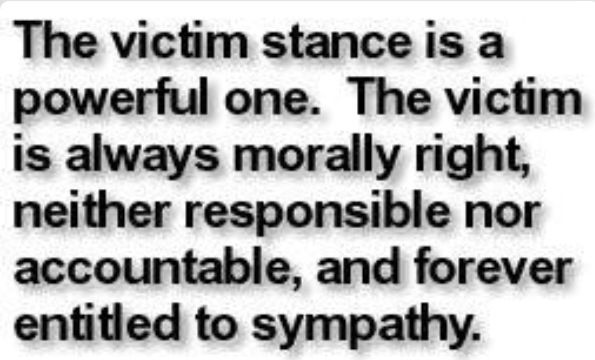 Why did Lucifer fall? He was second only to God, had great knowledge and power, but something was missing… Love.
Why did Lucifer fall? He was second only to God, had great knowledge and power, but something was missing… Love.
Try to understand that the distortion of knowledge over Love leads to the fall of the soul. As Marcus Aurelius said: "In many knowledge, many sorrows." Another philosopher Michel de Montaigne said: “Just as plants wither from an excessive abundance of moisture, and lamps from an abundance of oil, so the human mind, with excessive studies and an abundance of knowledge, cluttered and suppressed by their endless variety, loses the ability to make sense of this heap. and under the burden of an unbearable load bends and withers.
They are absolutely right. Knowledge weighs down a person, and if they are not yet realized in him, then they begin to put pressure on him, creating nervousness and aggression towards the outside world. When we receive information that we want to realize, we automatically attribute ourselves to higher personalities, and those entities that interfere with this, to opponents and low-grade people. We get hooked on pride and vanity, increasing our sense of self-importance and forgetting what our original motive was. As a result, we begin to fight with all those people who do not share our views on the world around us, as a result of which our human qualities leave and only the thirst for our own rightness remains.
We get hooked on pride and vanity, increasing our sense of self-importance and forgetting what our original motive was. As a result, we begin to fight with all those people who do not share our views on the world around us, as a result of which our human qualities leave and only the thirst for our own rightness remains.
Have you or someone you know started showing signs of a victim mentality? Such individuals constantly complain about problems and believe that the whole world is against them. If you always play the role of a victim, then you will forget how to take responsibility and make any decisions. You should learn to recognize such signs and take action to change your way of thinking.
Steps
How to recognize the mentality of the victim
Conviction. First of all, the mentality of the victim is signaled by the tendency to shift the blame for the circumstances on others. You may be blaming your spouse for not seeing your friends and being isolated from society.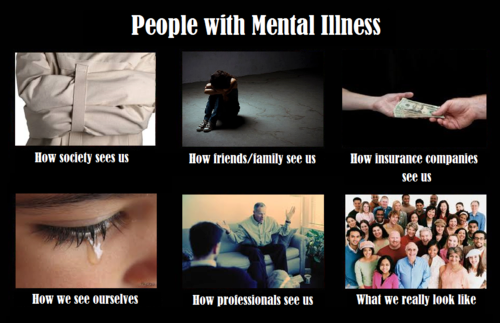 Or you blame your parents for not creating the conditions for your success in the future.
Or you blame your parents for not creating the conditions for your success in the future.
Complaint calls. Do you constantly express your problems and grievances to those who are ready to listen? Are your friends less likely to answer calls, and employees increasingly bypass you? Even the strongest relationship can deteriorate if one of the parties constantly shares only bad news.
Self-hatred. A person with a victim mentality often feels inadequate and inferior. He feels self-hatred and is always nervously waiting for those around him to notice all his failure.
Fixation on past mistakes. Living in the past is another sure sign of a victim mentality. For example, a person constantly looks back and regrets decisions made or missed opportunities.
- It makes no sense to live in the past, because we exist only in the present. How often do you regret your actions? No need to waste time and get hung up on what has already been done.
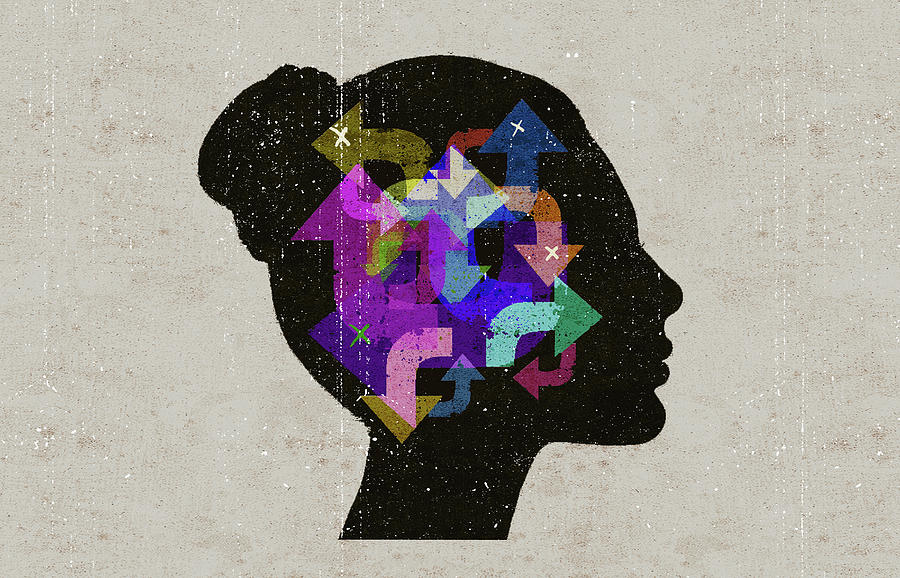 Come back to the present and decide what can be improved or fixed.
Come back to the present and decide what can be improved or fixed.
Comparisons. If you constantly analyze the lives of friends, relatives or acquaintances and think about how well they are doing, then you are obsessed with suffering and failure. Theodore Roosevelt argued that “comparisons rob us of joy,” because a person has no time to enjoy his life if he constantly compares himself with others.
External locus of control. With an internal locus of control, a person feels the ability to influence the situation, while with an external locus of control, there is a belief that the situation itself controls you. This is one of the hallmarks of the victim mentality.
- For example, when your boss is dissatisfied with your work and speaks negatively about it, you decide for yourself: "He is always dissatisfied. Looks like I'm going to be fired." This is an indicator of the external locus of control and mentality of the victim.
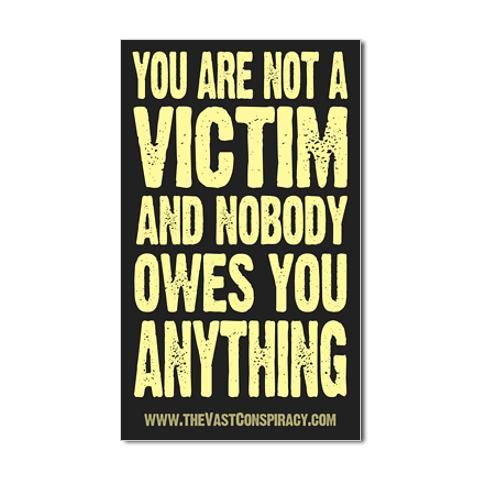
- Individuals with an internal locus of control may react positively to such a remark and think: "Well, I screwed up. I need to decide how to improve my results so that the boss is pleased, and I continue to work at this company."
- Develop a sense of control over the circumstances and events of your own life to get rid of the victim mentality.
When is it okay to feel like a victim? In general, the mentality of the victim brings only harm to personal and social life, but in a number of situations this feeling is quite justified if you happen to experience physical or emotional pain.
How to change the way you think
-
Take responsibility. Take responsibility for your problems and finally stop blaming everything on circumstances. The ability to bear responsibility helps to find solutions to the most difficult problems. In addition, by doing good deeds, you will begin to believe in your own strength and find a way out of any situation.
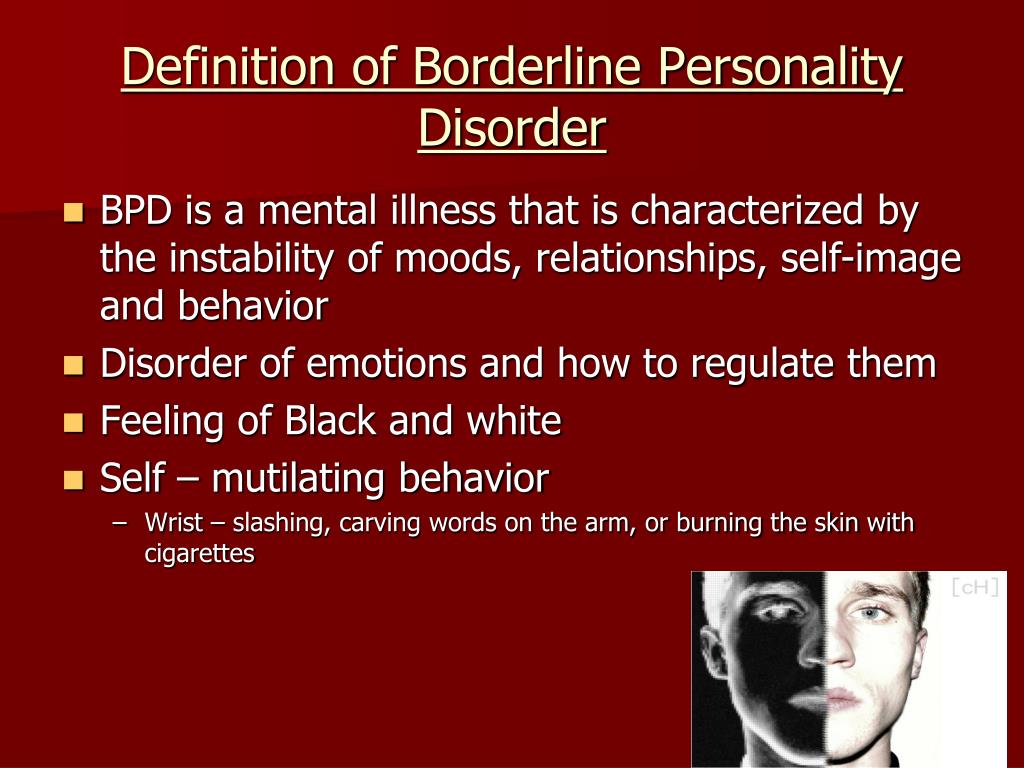
- Start taking personal responsibility for your life. Believe that it is you who is responsible for all positive and negative decisions and actions. By accepting this thought, you will begin to take steps that will allow you to live in accordance with your desires and ideas.
-
Learn to forgive . A person who has adopted the mentality of a victim often takes offense at misconduct or betrayal for longer than it should be. Alas, fixation on anger, indignation and pain only exacerbates the gloomy colors. Remember the famous words of the Buddha: “To be angry is like drinking poison yourself and waiting for the death of another person.” It is forgiveness that will help you move away from the mentality of the victim and make positive changes in your life.
Learn to be grateful. Gratitude is a great antidote to the victim mentality. With this way of thinking, a person usually focuses on the negative. Gratitude will allow you to consider the positive aspects.

Calculate risks. One of the disadvantages of the victim mentality is that one is unlikely to take advantage of opportunities that may lead to future success. Part of the regrets about the past lies in the excessive desire to play it safe at the moment of making a decision. The events of the past cannot be changed, but you can become bolder and more courageous in the future.
-
Accept criticism and rejection. The desire to take criticism and rejection to heart has deeply ingrained a victim mentality in your mind. It is important to learn how to boldly accept negative opinions in order to break out of a vicious circle and a false way of thinking. Avoiding criticism is like avoiding risk. You are cautious and do not take risks because you are afraid of the consequences.
- It is important to understand that criticism and rejection come from outside. Someone else's opinion about you is formed in someone else's mind.
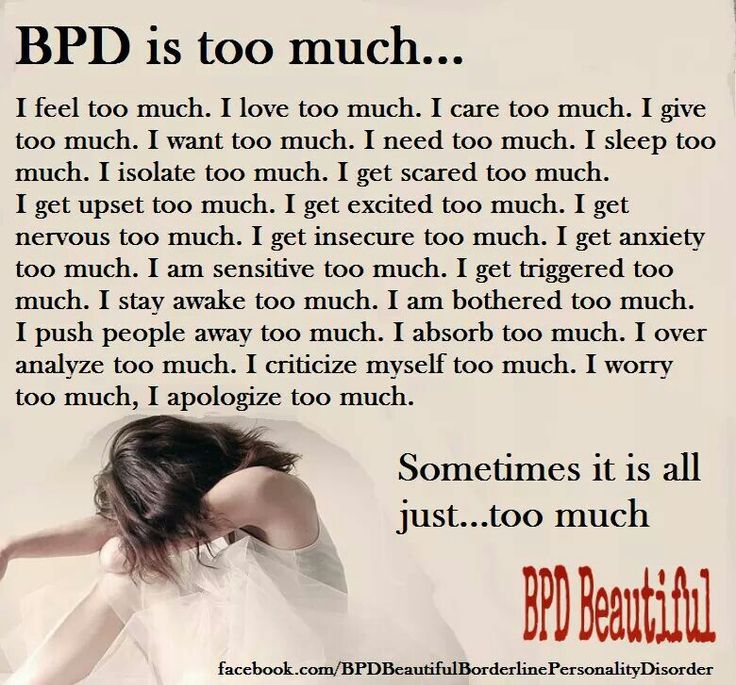 Freely consider someone else's opinion and analyze how it will be useful to you in the future. Listen to helpful criticism and dismiss useless remarks.
Freely consider someone else's opinion and analyze how it will be useful to you in the future. Listen to helpful criticism and dismiss useless remarks.
- It is important to understand that criticism and rejection come from outside. Someone else's opinion about you is formed in someone else's mind.
-
Strengthen your faith in your strength. She convinces you of the ability to influence the situation and achieve your goals. If you doubt yourself, then strengthen faith in your strength. Use the following tips:
- focus on small goals and accomplishments . If you set only big goals and recognize only big achievements, then you risk undermining self-confidence. Focus on small achievable goals and acknowledge even small successes. For example, set a goal of exercising four times a week for 30 minutes. Praise yourself for your perseverance after every workout.
- Remember successful moments . Thinking about past successes also strengthens self-confidence. You can always remember a winning goal in a competition or an excellent result in an exam.
- Watch people who believe in themselves .
 A good example is a great way to believe in yourself. Watch a person who has achieved a goal - got an education, built a successful career, or lost weight. Admire such a person and repeat after him.
A good example is a great way to believe in yourself. Watch a person who has achieved a goal - got an education, built a successful career, or lost weight. Admire such a person and repeat after him.
Z and in my more than 50 years of living in New York, I have observed many types of people. In this article, I will divide these people into two categories: people with a winner mentality and people with a victim mentality. People with a victim mindset interpret the world in a completely different way than people with a winner mentality. The first sees the obstacle as an unfair challenge, and the second as an opportunity to overcome this obstacle. You can also say that in America's politics, candidates try to appeal to either one group or another. To the victims they promise their intervention, and to the victors they promise as many opportunities as possible without the interference of government and laws.
Your perception of yourself has nothing to do with the color of your skin, or the society in which you grew up (of course, there is personal temperament, psychological education, emotional abuse and other things that contribute to the development of a victim mentality). I have seen ethnic minorities overcome racism and poverty and achieve great goals (to name a few: Booker T. Washington, George Washington Carver, Martin Luther King, Jesse Owens, Jackie Robinson), and I have seen others, surrounded by abundance and prosperity, become overwhelmed, full of failure and self-hatred. Circumstances do not define your way of thinking, but it is how you look at yourself and react to life's problems and questions that creates that definition (of course, in this article I'm talking about lifestyle, but in reality there are also real victims of sexual abuse, emotional trauma, sex trafficking, and suffering from various traumas and needing outside intervention in order to recover).
I have seen ethnic minorities overcome racism and poverty and achieve great goals (to name a few: Booker T. Washington, George Washington Carver, Martin Luther King, Jesse Owens, Jackie Robinson), and I have seen others, surrounded by abundance and prosperity, become overwhelmed, full of failure and self-hatred. Circumstances do not define your way of thinking, but it is how you look at yourself and react to life's problems and questions that creates that definition (of course, in this article I'm talking about lifestyle, but in reality there are also real victims of sexual abuse, emotional trauma, sex trafficking, and suffering from various traumas and needing outside intervention in order to recover).
To illustrate this point, I grew up in a small, lower-middle-class apartment, and when my friends found out that I was part Hispanic, they started to play pranks on me; anyway, instead of hiding in a corner, I aggressively fought back and played a trick on them, putting them in their place, and they never returned to this topic.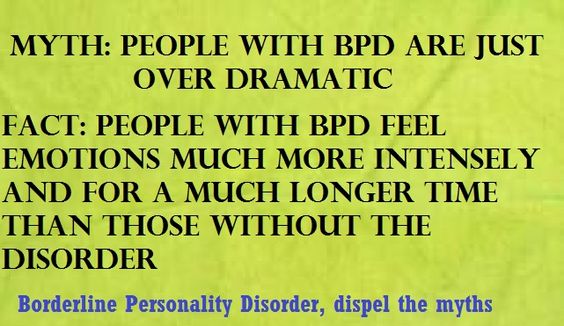 Why did I answer like this? Because I had an instinctive sense of self-worth that surpassed any insults thrown at me.
Why did I answer like this? Because I had an instinctive sense of self-worth that surpassed any insults thrown at me.
Moreover, as Christians, we are called to live with the inner understanding that in Jesus Christ we are more than overcomers (Rom. 8:37).
As Christians, we should never adopt a victim mindset. This world is full of people who are captivated by this way of thinking, and as a result, millions of people are enslaved and unable to fulfill their God-given potential.
One of the most important things that my wife Joyce and I instilled in our five biological children is the fact that they are not victims but conquerors. We taught them that everyone faces obstacles in life, but that's no excuse to hide in a corner and feel sorry for yourself. We also taught the children that when you grow up, if you don't help yourself, no one else will help you! We have taught our children to be the head not the tail, to be over not under, to use their creativity to become entrepreneurial, and to be group leaders rather than followers (read Deuteronomy 28:10-13).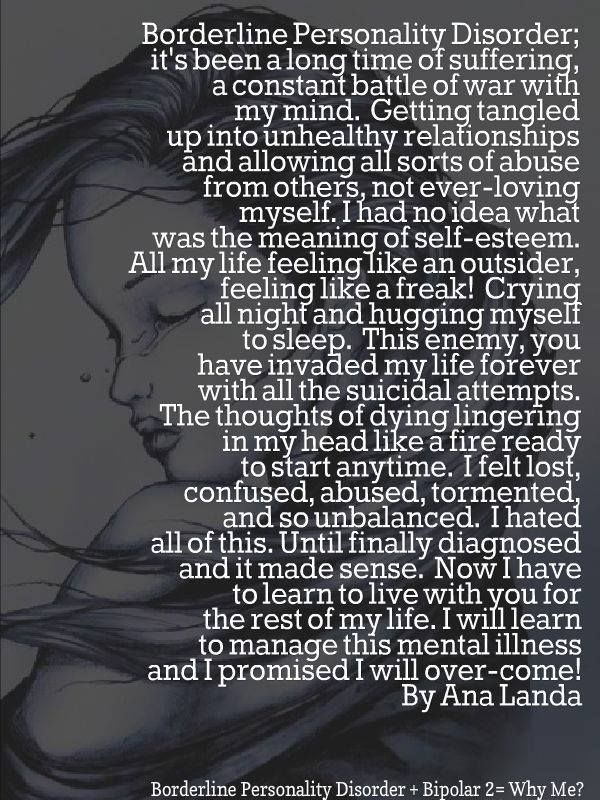 Millions are subject to a victim mentality because they blindly follow the “mob mindset” of their peers, media, political parties and/or culture. Even many believers in Christ are caught in the mind games of this world, which pits one group against another ("haves" against "have nots").
Millions are subject to a victim mentality because they blindly follow the “mob mindset” of their peers, media, political parties and/or culture. Even many believers in Christ are caught in the mind games of this world, which pits one group against another ("haves" against "have nots").
For example, Marxists, far-left liberals and socialists (like Bernie Sanders) play on the spirit of the victim - involve them in the class struggle, and make a living by portraying entire groups of people as victims in order to get elected and secure a good position for themselves. Without the victim mindset, thousands of politicians would be out of a job!
I am not saying that I believe there is no racism or injustice or economic and political inequality, but despite these factors, we must focus on teaching people that they have the right to succeed in any field, with God's help. The following comparisons should help you understand which camp you are in; if you are in the camp of the victim mindset, then God wants to change your belief system and change your mindset to the victorious one.
Comparing the mindset of the victim and the victor (to save time, I will not use the word "mindset" in the paragraphs below):
1 - The victim believes that the whole world is against him / The winner believes that the whole world needs him
2 - The victim sees problem as obstacle / Winner sees obstacle as opportunity
3 - Victim blames others in their failures / The winner takes responsibility for successes and failures
4 - Victim needs in supporting others to succeed / Winner succeeds with what he currently has
5 - Victim never not satisfied and always looking for more / The winner is grateful for what he already has and builds on this further
6 - The victim feels that everyone owes them something / The winner believes that no one owes him anything
7 - Victim lives at the expense of other people / The winner lives by making others happy
8 - Sacrifice will die in bitterness / The winner will die satisfied
9 - The victim sees Only closed doors / Winner sees only open doors
10 - Victim spreads only negative attitude towards everyone / Winner - positive
11 - Victim - pessimist / Winner - optimist
12 - Victim if fails, gives up quickly / Winner won't finish until successful
13 - Victim only has a few real friends / Winner empowers and makes new friends
14 - Victim repels people / Winner attracts
15 – Always the victim fights for “his rights” / The winner lives by defending the rights of others
16 – The victim is inherent the spirit of criticism and condemnation of others / The victor blesses others
17 - Victim thinks that people are against him / The winner thinks that people are on his side
18 - Victim plays on the emotions of others / Winner helps others cope with feelings
19 - Victim uses others looking for what they can get / Winner is the catalyst, inspiring people to prosper
20 - The victim believes for evil, making the situation worse / The winner believes in God, making the situation better
By Joseph Mattera / josephmattera.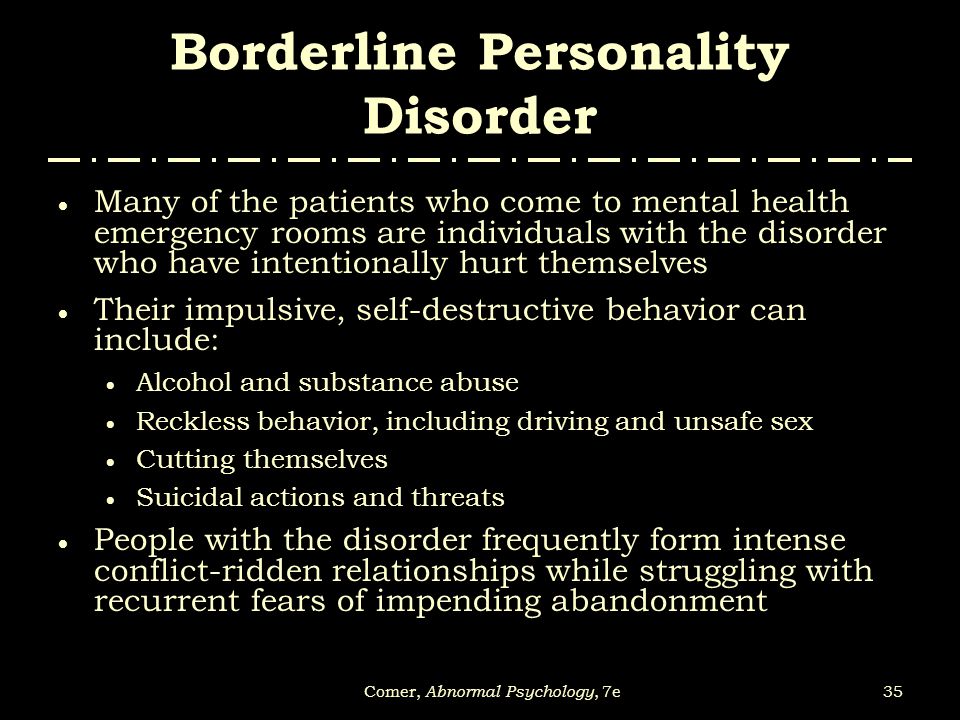 org
org
Translation - Tanya Kovalskaya for
I carefully read the articles on the site and the answers to questions on psychopathic personality disorders, trying to find the answer to the question why my colleague just poisons me psychologically. QUESTION: how do such people find a victim? Why do they choose certain people? I hold a senior position in a company (deputy director), a woman at the same level (financial director). I try to find a common language, I don’t pay attention, I ignore it, I answer the same way - I tried different tactics, the result is the same - aggression is not removed. It's not about me. But still, I don’t go to work to fight. I want constructive communication and work in the interests of the cause.
TheSolution psychologist's answer:
The first thing you want to understand about the situation in which you are the victim is that you are responsible for creating and maintaining the problem situation. Pay attention to the fact that this is not about guilt, but about responsibility, i.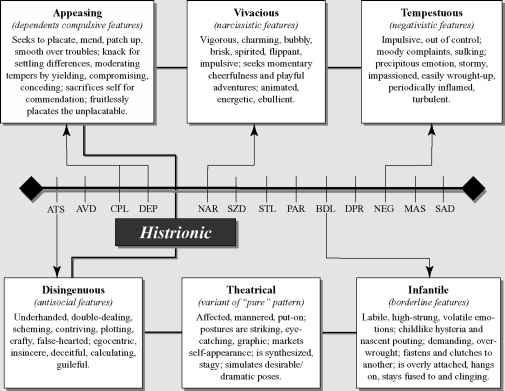 e. awareness of their role and their participation in the conflict. Relationships between people cannot be one-sided. If one offers interaction from the role of the persecutor, then the second agrees to play the role of the suffering victim. There is always a stimulus and a response. We can say that before a potential stalker starts playing a manipulative psychological game, he will certainly check the reaction of a potential victim at the cognitive, emotional and behavioral levels.
e. awareness of their role and their participation in the conflict. Relationships between people cannot be one-sided. If one offers interaction from the role of the persecutor, then the second agrees to play the role of the suffering victim. There is always a stimulus and a response. We can say that before a potential stalker starts playing a manipulative psychological game, he will certainly check the reaction of a potential victim at the cognitive, emotional and behavioral levels.
The most vulnerable in a person is . Therefore, people who tend to belittle their abilities and successes, their importance and dignity, endure the stress caused by external aggression extremely painfully. Some may find it amusing to tease and piss them off. A kind of brutal entertainment. The lower the level of self-esteem, the higher the risk that you will be asked to participate in the Karpman triangle scheme.
The aggressor is interested in people who show maladjustment in the emotional sphere.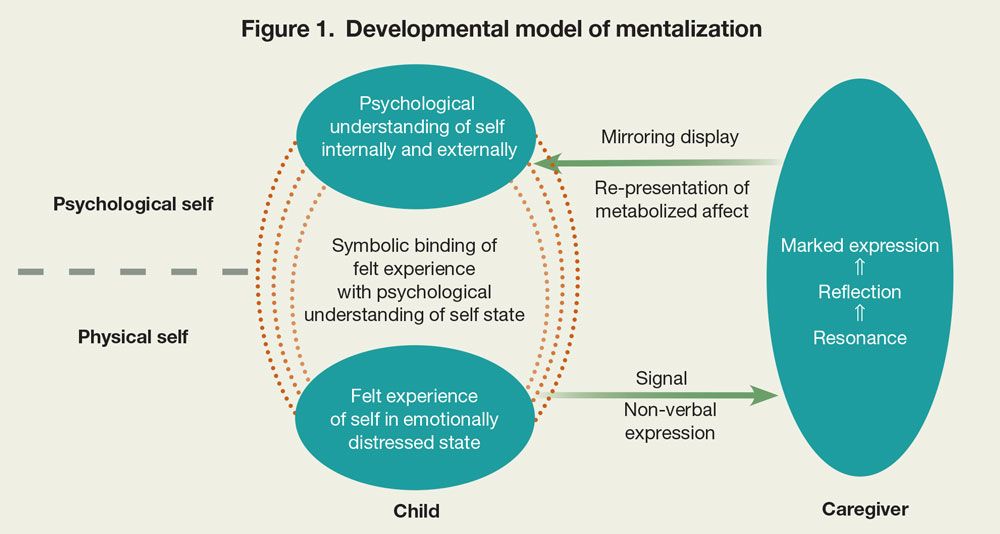 This refers to those who, in situations of failure, react with a sense of hopelessness, humility, or anger and "searching for the guilty." Those who refuse to solve problems and overcome difficulties because of disbelief in their own strength.
This refers to those who, in situations of failure, react with a sense of hopelessness, humility, or anger and "searching for the guilty." Those who refuse to solve problems and overcome difficulties because of disbelief in their own strength.
At risk are people who think irrationally, underestimate troubles and tend to look at others through the prism of complacency, unjustified trust. Also, the aggressor is interested in those people who, due to neurosis, lack adaptive coping mechanisms. It means those who are too sensitive to the discrepancy between the expected and the result obtained. Those who mentally compare themselves with others and expect a negative attitude from others are more likely to participate in conflicts based on the Karpman triangle scheme than others. And of course, those who are not at all versed in the psychology of relationships and the psychology of character can also, out of ignorance, accidentally find themselves in a victim position.
The victim mentality is formed in childhood.

Unhealthy relationships with parents are the reason why the child does not go through the phases of personal development correctly. More specifically, the victim mentality is formed due to the incompleteness of one of the most important stages of development in early childhood - the stage of establishing psychological autonomy. That is why it is important for a person with a victim mentality to work through all the problematic codependencies, personal boundaries, self-esteem, and not just be limited to a course on working with victim behaviors.
Signs of a victim mentality:
- Difficulty in making any decisions. The habit of creating situations where someone else makes decisions for them (“I don’t know what to do”)
- The habit of relying on the advice and support of other people "I have such problems, tell me what to do."
- The habit of letting other people control their lives. Corresponds to the low parameter
- Helplessness in response to criticism and disapproval.
 Dependence on the opinions of other people. An attempt to restore a positive attitude towards oneself in a conflict situation at any cost.
Dependence on the opinions of other people. An attempt to restore a positive attitude towards oneself in a conflict situation at any cost. - No borders. Not understanding where their personality ends and where the other person's personality begins.
- The habit of enduring everything that one does not like
- Fear of change, fear of actively changing the situation.
- Egocentrism. Victims take responsibility for the feelings of other adults, for the content of their thoughts, for their lives.
- . The repressed emotions break out in the form of anger and aggressiveness, leaving behind a feeling of guilt and shame.
Correction of the mentality of the victim
In order to change your way of thinking, your reactions and your decisions, it is important to analyze all the nuances of conflict situations together with a psychologist. Why is it important to discuss the small details of problematic situations, to put everything on the shelves?
First, the analysis of fragments of the situation will make it possible to see signs of a victim choice. A psychologist, like a mirror, helps to notice and realize ineffective strategies. Second, step-by-step analysis of a difficult situation will help you see exactly how you create problems for yourself. The value of analysis lies not only in the help of awareness, but also in effective concrete recommendations. When a psychologist tells you how it would be better to react to this or that phrase, what you should pay attention to, you learn to think and act differently. You will need this in the future.
A psychologist, like a mirror, helps to notice and realize ineffective strategies. Second, step-by-step analysis of a difficult situation will help you see exactly how you create problems for yourself. The value of analysis lies not only in the help of awareness, but also in effective concrete recommendations. When a psychologist tells you how it would be better to react to this or that phrase, what you should pay attention to, you learn to think and act differently. You will need this in the future.
What are the signs of a victim mentality?
We all have days when we feel the world is against us.
Maybe you're trying to connect with others, but they don't seem to understand the extent of your pain - or by making positive changes, you may sabotage yourself or give up quickly.
This is natural from time to time. But if this is similar to your situation most of the time (or all of the time), you may be living with a victim complex.
He can make you feel that life is not fair. You may even think that there is nothing you can do to change your circumstances, but that is not true. There is always something to be done.
You may even think that there is nothing you can do to change your circumstances, but that is not true. There is always something to be done.
What is the victim mentality?
The victim mentality is when a person feels like a victim in different situations, even if the facts say otherwise. They may feel they have no control over what happens to them.
This view can affect many areas of life such as relationships, work and health.
Victim thinking may develop as a mechanism for coping with previous traumatic experiences.
You may seem to have little or no control over external factors in your life. This is usually associated with:
- several situations where you lack control
- constant emotional pain leading to learned helplessness
- betrayal of the closest person
People with an alcohol or substance use disorder may find that a victim mentality keeps them in a spiral of addiction. They may feel helpless to change their circumstances, asking for support from others, feeling unable to support themselves.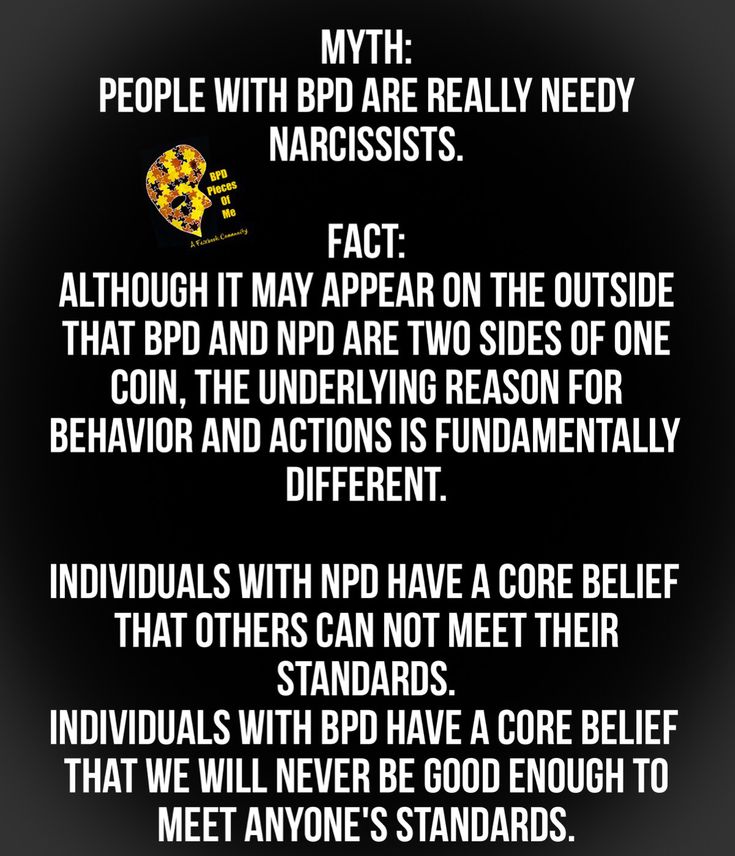
Signs of a victim mentality
The victim complex can manifest itself in different ways. It could be feeling like the world is out to get you, or it could be hard for you to take personal responsibility for what's going on in your life.
Signs of a victim mentality include:
Behavioral signs
- often blame external factors or other people when something goes wrong
- you find it difficult to take personal responsibility or understand how you could contribute to a situation
- overly critical of self or others
- self-sabotage
- communicate only with those who think the same way as you
Mental (cognitive) signs
- perceive the world as unfair or unsafe
- cognitive distortions such as catastrophizing
- harmful thought patterns or pessimism
- reflect on past grievances
- thinking about harming yourself or committing suicide
Signs in relationships
- difficulties with intimacy and trust
- emotional unavailability
- limited empathy for others
- distrust of authority figures
- maintaining an account in relationships
- problems accepting constructive criticism
Emotional signs
- anxiety
- depression
- feel invisible
- guilt or shame
- low self-esteem
- resentment towards others
- social isolation
A victim mentality can affect your life in many ways, from not letting you show up at work to disrupting relationship dynamics.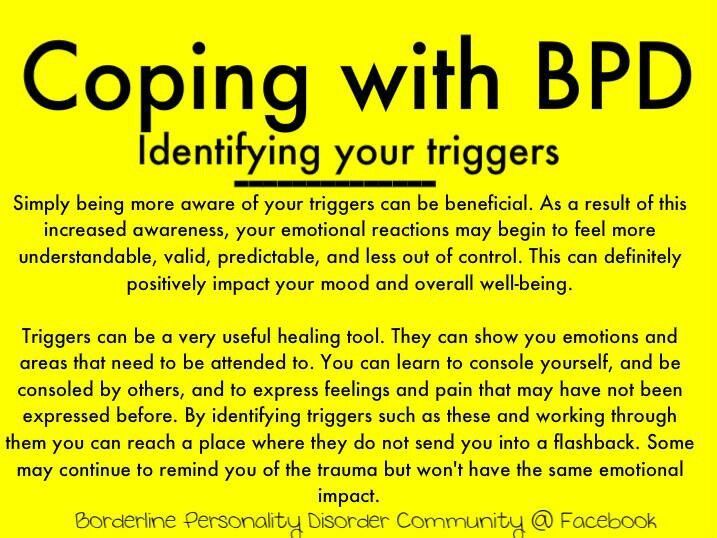 You may also have trouble maintaining healthy lifestyle habits.
You may also have trouble maintaining healthy lifestyle habits.
Is sacrifice a symptom or a trait?
Whether victim mentality is a symptom or a personality trait is difficult to say, as more research is needed.
One 2020 study suggests that the victim complex may be a personality trait dubbed "Tendency for Interpersonal Victimhood (TIV)". In this case, it covers several types of relationships and includes four patterns:
- desire to be recognized as a victim
- sense of moral superiority
- limited empathy for others
- frequent reflections
Feeling victimized can also be a symptom of another mental disorder, including:
- borderline personality disorder (BPD)
- major depressive disorder (MDD)
- narcissistic personality disorder (NPD)
- post-traumatic stress disorder (PTSD)
- complex post-traumatic stress disorder (CPTSD)
To determine the root cause of feelings, you may find it helpful to work with a therapist who is familiar with trauma.
Strategies and tips for dealing with the victim mentality
If you are ready to change your feelings, many strategies can help you.
Consider professional support
You don't have to go through this alone. Psychotherapy can help you deal with past trauma and increase your emotional intelligence. A therapist can help you learn to choose whether to walk out of a situation or accept it, and to take responsibility for what you can control in life and how you react.
The therapist can also work with you to set goals and develop self-efficacy so you feel more in charge of your life. To complement your work in therapy, consider keeping a diary to process emotions and develop the practice of gratitude.
Try practicing self-compassion
Take a moment to appreciate yourself for everything you've been through.
Violence can lead to shame, guilt, anxiety, depression and low self-esteem. Victims very often think that they are the reason someone abused them, so counseling can help build a positive internal dialogue to get rid of any self-blame.
Consider changing your identity
Research shows that in some cases it can be difficult to overcome the victim mentality if there are incentives to maintain the role, such as medical benefits, income, or some other form of security.
You may find it helpful to change your vocabulary. Instead of calling yourself a victim, you can switch to calling yourself a victim of abuse, which can empower you and help build emotional security in a future relationship.
Try to own your story
A 2021 study found that sexually assaulted women were able to move from being a victim to being a survivor thanks to:
- providing social support
- restoring their history
- setting a schedule for healing
There are many ways to tell your story, such as writing an article to help others in a similar situation, volunteering for a non-profit organization, and creating art, among other ideas.
How to deal with someone with a victim mentality
It can be frustrating if you know someone who shows signs of a victim complex, especially if you love that person and want them to be okay.

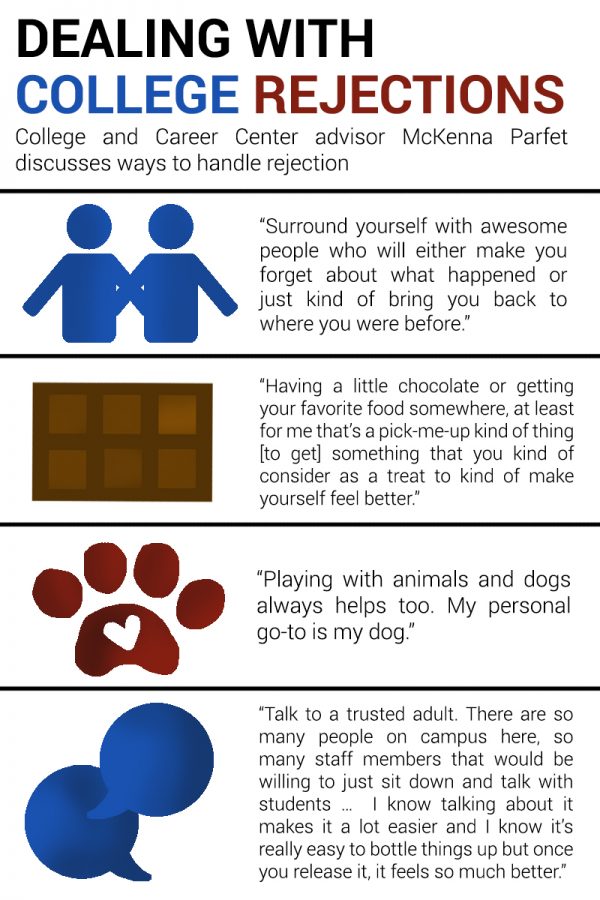

/pic3667676.jpg)
